Istanbul Travel Guide
Welcome to Istanbul, a mesmerizing city that straddles two continents, Europe and Asia, and boasts a rich history dating back thousands of years. This enchanting metropolis, once known as Byzantium and later as Constantinople, has been the capital of three great empires: Roman, Byzantine, and Ottoman. Today, Istanbul is Turkey’s largest city and a vibrant cultural hub, where you can explore its fascinating past, savor its delicious cuisine, and experience its lively atmosphere.
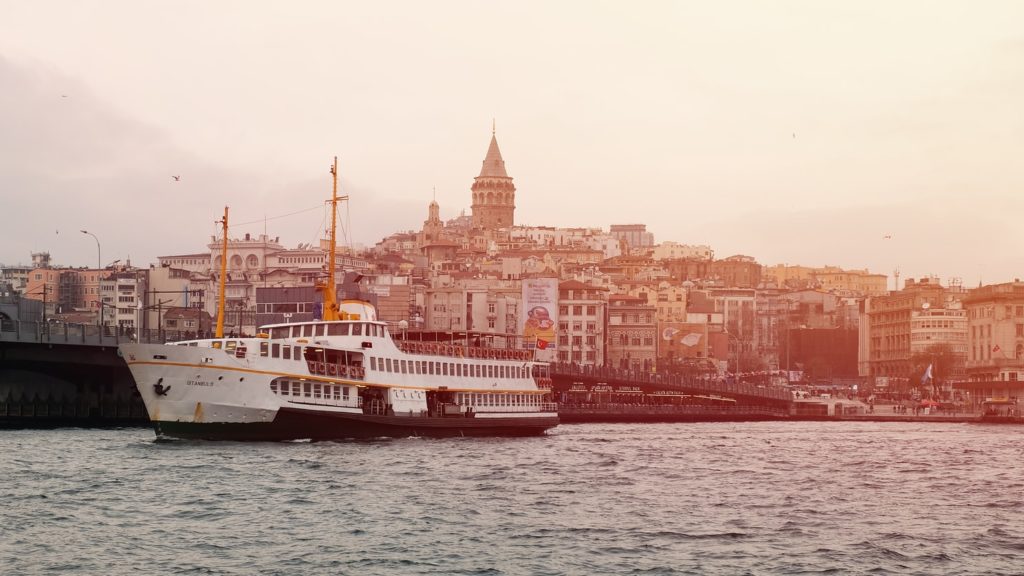
Travel to Istanbul
Istanbul is a popular touristic destination for a variety of reasons, including its unique blend of history, culture, architecture, and natural beauty. Here are some factors that contribute to its appeal:
Rich History: Istanbul has been the capital of three great empires (Roman, Byzantine, and Ottoman), giving the city a fascinating and diverse history that spans thousands of years. Numerous historical sites and monuments, such as Hagia Sophia and Topkapi Palace, reflect the city’s storied past.
Cultural Diversity: Istanbul’s location at the crossroads of Europe and Asia has made it a melting pot of cultures, religions, and traditions. This cultural fusion is evident in the city’s art, architecture, music, and cuisine, creating a unique and vibrant atmosphere.
Architectural Wonders: The city boasts an impressive array of architectural masterpieces, including the Blue Mosque, Hagia Sophia, and Galata Tower, which showcase a mix of Byzantine, Ottoman, and modern influences.
Natural Beauty: Istanbul’s location along the Bosphorus Strait, as well as the Golden Horn and the Sea of Marmara, provides stunning water views, lush green parks, and picturesque landscapes.
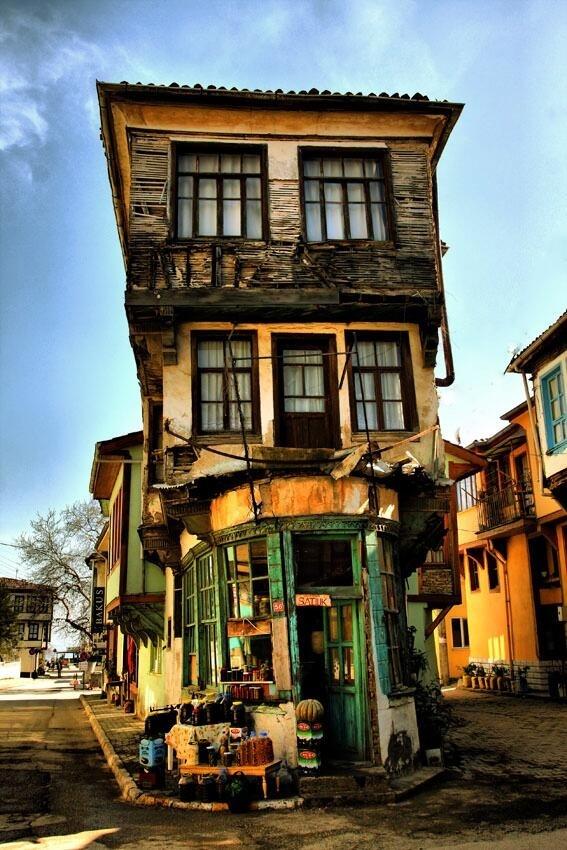
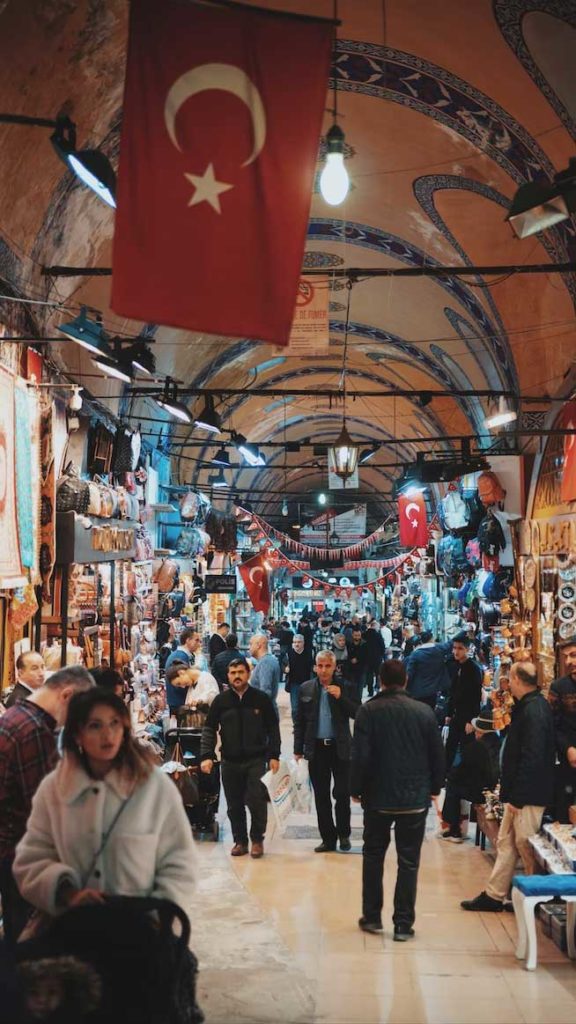
Shopping: From the bustling Grand Bazaar to upscale shopping districts like Nisantasi and Istinye Park, Istanbul offers a diverse shopping experience, catering to various tastes and budgets.
Gastronomy: Istanbul’s culinary scene is renowned for its delicious dishes, influenced by both eastern and western traditions. Visitors can savor a wide range of Turkish specialties, such as kebabs, meze, baklava, and Turkish coffee.
Lively Atmosphere: Istanbul has a vibrant nightlife scene with numerous bars, clubs, and entertainment venues, as well as festivals and events throughout the year, catering to different interests and preferences.
Accessibility: Istanbul is well-connected to major cities around the world through its two international airports, making it a convenient destination for travelers.
Warm Hospitality: Turkish people are known for their warm and friendly nature, which adds to the overall appeal of visiting Istanbul. Visitors often feel welcomed and embraced by the local culture.
Affordable Luxury: Compared to other major European cities, Istanbul offers a relatively affordable travel experience without compromising on quality, making it an attractive destination for a wide range of travelers.

When to go to Istanbul – the 4 seasons in Istanbul
Istanbul experiences four distinct seasons, each offering different experiences and advantages for travelers. Here’s a brief overview of what to expect during each season in Istanbul:
Spring (March-May):
Spring is considered one of the best times to visit Istanbul. The weather is mild, with average temperatures ranging from 10°C (50°F) in March to 20°C (68°F) in May. The city comes alive with vibrant colors as flowers bloom and parks become lush green. Spring is also the season for various cultural events and festivals, such as the Istanbul Tulip Festival and the Istanbul Film Festival.
Summer (June-August):
Summers in Istanbul can be hot and humid, with temperatures reaching up to 30°C (86°F) in July and August. This is the peak tourist season, so expect larger crowds at popular attractions and higher prices for accommodations. Summer evenings are perfect for enjoying outdoor dining and rooftop terraces, as well as a Bosphorus cruise. You can also attend events like the Istanbul Jazz Festival and the Istanbul Shopping Fest during this time.
Autumn (September-November):
Autumn is another excellent time to visit Istanbul. The weather is pleasantly cool, with temperatures ranging from 15°C (59°F) to 25°C (77°F) and the summer crowds begin to dissipate. The city is painted with beautiful shades of orange and yellow as the leaves change color, making it an ideal time for sightseeing and strolling through parks. During this season, you can also attend the Istanbul Biennial, an international contemporary art exhibition.
Winter (December-February):
Winters in Istanbul can be chilly and wet, with temperatures ranging between 3°C (37°F) and 10°C (50°F). Snowfall is rare but possible, giving the city a magical appearance when it does occur. Winter is the low season, so you’ll find fewer tourists and lower prices for accommodations. While it may not be the ideal time for outdoor activities, you can still enjoy the city’s many museums, galleries, and historic sites. It’s also an excellent opportunity to experience a traditional Turkish bath (hammam) and indulge in warm Turkish tea and comfort food.
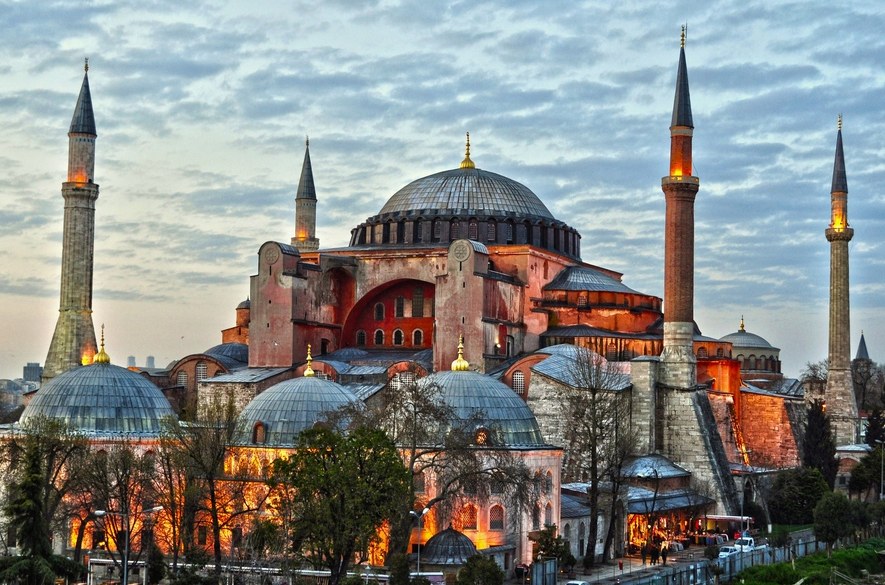
From the airports to the city center
Istanbul has two international airports, Istanbul Airport (IST) on the European side and Sabiha Gokcen Airport (SAW) on the Asian side. Here are some transportation options for getting from each airport to the city center:
Istanbul Airport (IST)
Havaist Shuttle Bus: Havaist operates an airport shuttle service that connects Istanbul Airport to various points in the city, including Taksim, Sultanahmet, and other central areas. The journey to Taksim takes around 90 minutes, while the trip to Sultanahmet takes approximately 100 minutes. Buses run frequently throughout the day, and tickets can be purchased at the airport or online.
Taxi: Taxis are available 24/7 at the airport. The journey to the city center takes approximately 45-60 minutes, depending on traffic. Keep in mind that taxis can be more expensive than other transportation options, especially during peak hours.
Private Transfer: For a more comfortable and hassle-free experience, you can pre-book a private transfer service. Various companies offer this service, and you can arrange a pickup from the airport to your hotel or other desired location.
Public Transportation: Istanbul Airport is connected to the city center by a metro line (M11). You can take the metro to Gayrettepe station and then change to M2 Yenikapı-Hacıosman line, which connects to Taksim, Şişli, and other central areas. Note that this option may not be convenient if you have a lot of luggage or if you are arriving late at night.
Sabiha Gokcen Airport (SAW)
Havabus Shuttle Bus: Havabus operates an airport shuttle service that connects Sabiha Gokcen Airport to Taksim and Kadıköy. The journey to Taksim takes about 90 minutes, while the trip to Kadıköy takes approximately 60 minutes. Buses run frequently throughout the day, and tickets can be purchased onboard.
Taxi: Taxis are available 24/7 at the airport. The journey to the city center on the European side takes around 60-90 minutes, depending on traffic. As with Istanbul Airport, taxis can be more expensive than other transportation options.
Private Transfer: You can also pre-book a private transfer service for a convenient and comfortable journey from Sabiha Gokcen Airport to your desired location in the city.
Public Transportation: From the airport, you can take the E10 or E11 public buses to the Kadıköy metro station. From there, you can use the Marmaray line to cross to the European side, connecting to other metro lines to reach your destination. This option may be less convenient if you have a lot of luggage or if you are arriving late at night.
Regardless of which airport you arrive at, make sure to have some Turkish Lira with you, as some transportation services may not accept credit cards or foreign currencies.
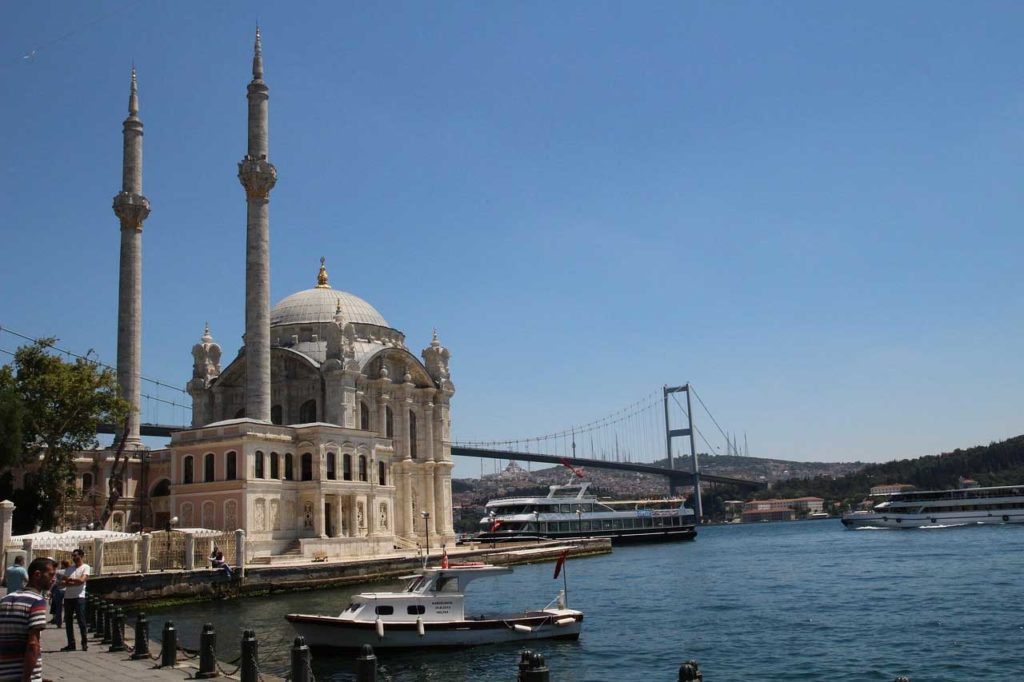
Explore Istanbul’s neighbourhoods
Istanbul is a vast city with numerous neighborhoods, each with its unique charm and character. Here’s a brief overview of some of the most popular neighborhoods and their points of interest:
Sultanahmet:
Sultanahmet is the heart of Istanbul’s historic district and home to many of the city’s most famous attractions. Points of interest in Sultanahmet include Hagia Sophia, the Blue Mosque, Topkapi Palace, the Basilica Cistern, the Hippodrome, and the Arasta Bazaar. This neighborhood is ideal for travelers looking to explore Istanbul’s rich history and immerse themselves in the city’s ancient past.
Beyoğlu:
Beyoğlu, encompassing the popular areas of Taksim, Galata, and Karaköy, is known for its vibrant atmosphere, lively nightlife, and diverse dining options. Points of interest in Beyoğlu include Istiklal Street, Galata Tower, Pera Museum, and the Church of St. Anthony of Padua. The neighborhood is perfect for visitors seeking a more modern and cosmopolitan Istanbul experience.
Karaköy:
Karaköy is a trendy waterfront neighborhood situated at the northern part of the Golden Horn. It has become a hub for art galleries, boutiques, and trendy cafes. Points of interest in Karaköy include the Istanbul Modern Art Museum, the Galata Bridge, and the historic Bankalar Caddesi (Banks Street). This neighborhood is an excellent choice for art enthusiasts and those looking for a more bohemian vibe.
Balat/Fener:
Balat and Fener are two adjacent neighborhoods on the Golden Horn’s western bank, known for their narrow, colorful streets and historic architecture. Points of interest include the Church of St. George (the headquarters of the Greek Orthodox Church), Ahrida Synagogue, and the Fener Rum Lisesi (a historic Greek school). These neighborhoods are ideal for travelers looking for an off-the-beaten-path experience and a glimpse into Istanbul’s multicultural past.
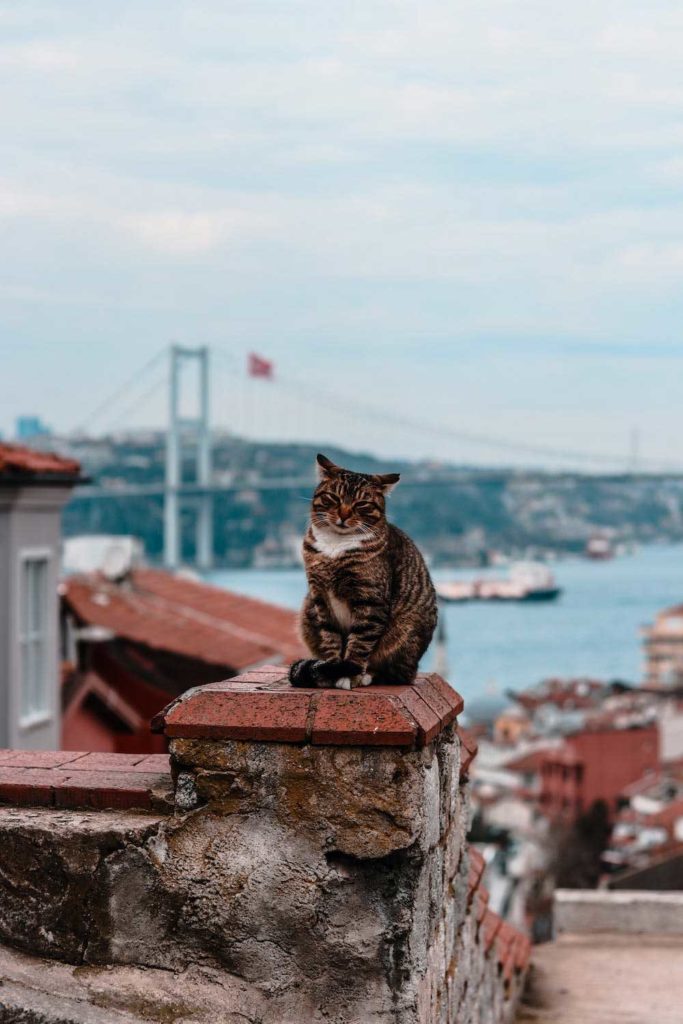
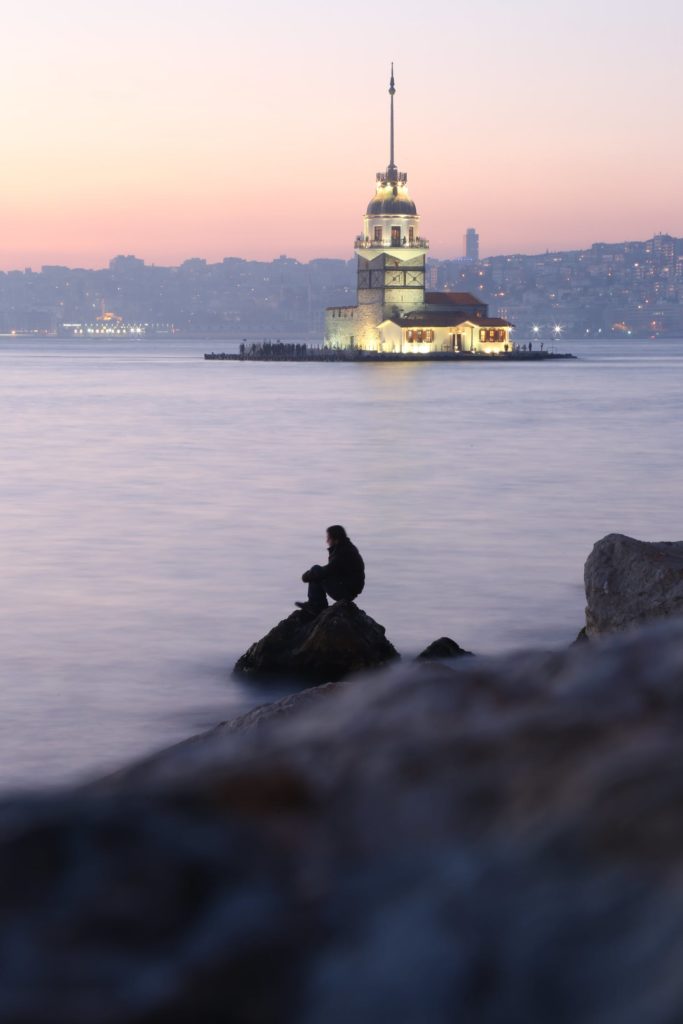
Kadıköy:
Located on the Asian side of Istanbul, Kadıköy is a vibrant neighborhood with a bustling market area, numerous cafes, bars, and restaurants. Points of interest in Kadıköy include the famous fish market, the Moda seaside promenade, and the Süreyya Opera House. This neighborhood is great for those who want to explore the Asian side of the city and enjoy a more local atmosphere.
Üsküdar:
Üsküdar is another prominent neighborhood on the Asian side, boasting a rich history and stunning views of the Bosphorus. Points of interest in Üsküdar include the Mihrimah Sultan Mosque, the Maiden’s Tower, and the Kuzguncuk neighborhood with its charming streets and historic houses. Üsküdar is an excellent choice for travelers looking for a more tranquil and traditional experience in Istanbul.
Beşiktaş:
Beşiktaş is a lively neighborhood on the European side, known for its bustling market, lively atmosphere, and numerous dining options. Points of interest in Beşiktaş include the Dolmabahçe Palace, the Naval Museum, and the Yıldız Park. This neighborhood is ideal for those who want to experience Istanbul’s daily life and enjoy a mix of modern and historical attractions.
Ortaköy:
Ortaköy is a picturesque neighborhood on the European side, nestled along the Bosphorus. Points of interest in Ortaköy include the Ortaköy Mosque, the Bosphorus Bridge, and the neighborhood’s vibrant square with numerous cafes, restaurants, and shops. Ortaköy is a great place for those who want to enjoy a relaxing day by the Bosphorus, indulge in delicious street food, and take in stunning views of the city.
Eminönü:
Eminönü is a bustling transportation hub and commercial center located on the European side of the city. Points of interest in Eminönü include the Grand Bazaar, the Spice Bazaar, the New Mosque (Yeni Cami), and the Galata Bridge. This neighborhood is perfect for visitors looking to experience the energy of Istanbul’s markets and shop for traditional goods and souvenirs.
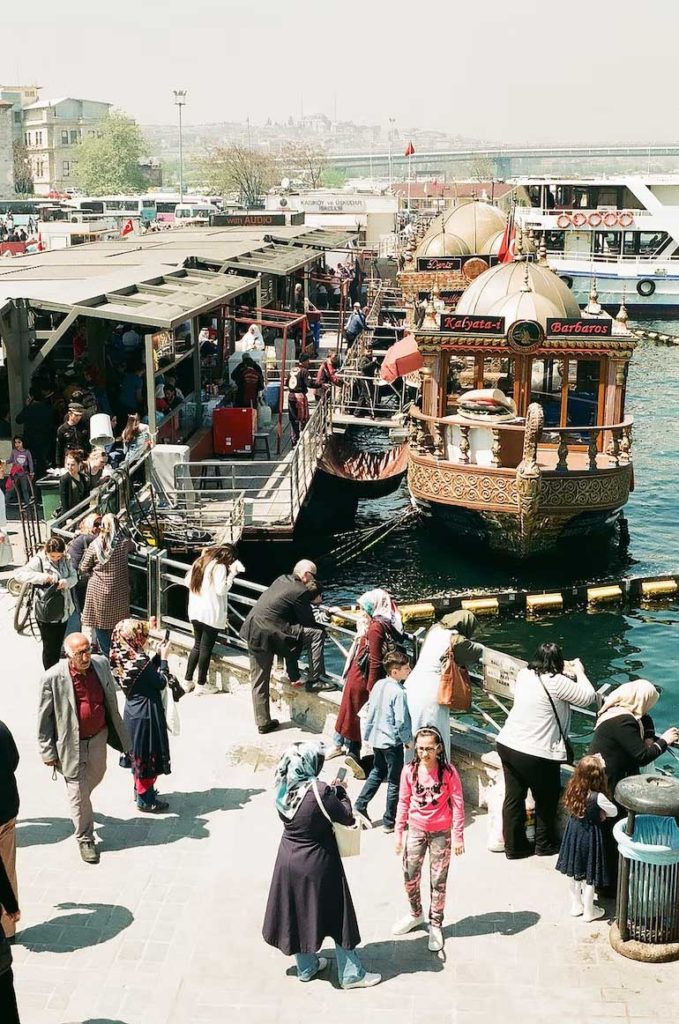
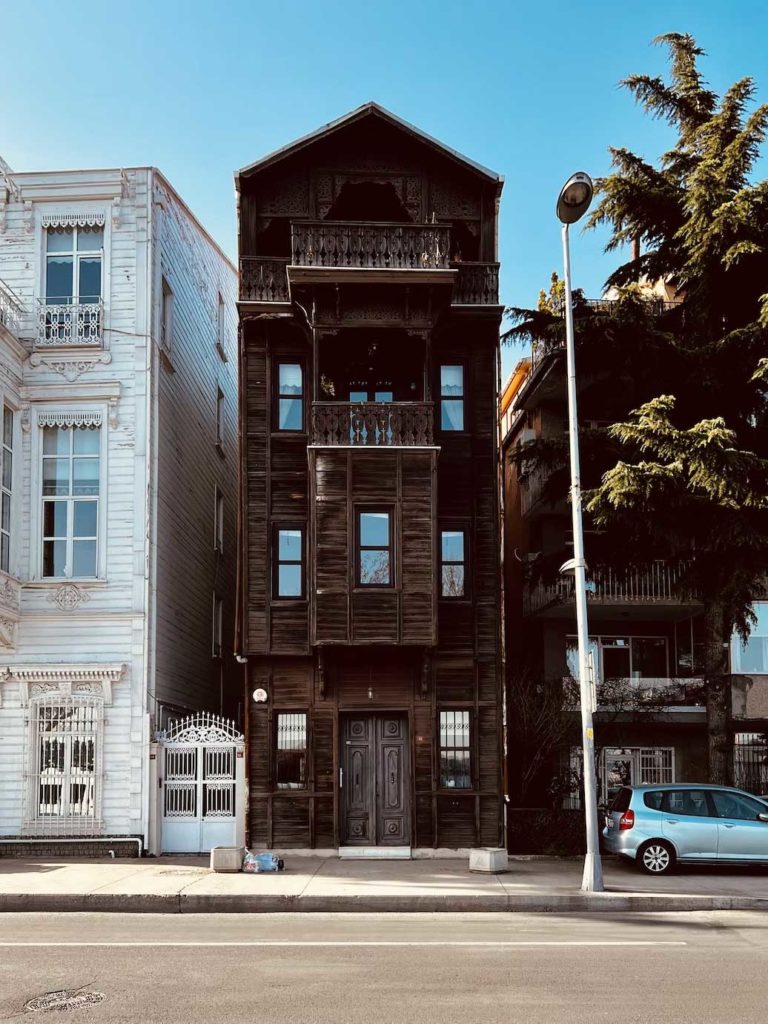
Nişantaşı:
Nişantaşı is an upscale neighborhood known for its luxury boutiques, high-end shopping malls, and elegant restaurants. Points of interest in Nişantaşı include the City’s Shopping Mall, Abdi İpekçi Street (a famous shopping street), and the Atatürk Museum. This neighborhood is an excellent choice for those who want to indulge in shopping and experience Istanbul’s fashionable side.
Cihangir:
Cihangir is a trendy, bohemian neighborhood popular with artists, writers, and expats. Its narrow streets are lined with cafes, bars, and boutiques, making it a perfect spot for people-watching and leisurely strolls. Points of interest in Cihangir include Cihangir Mosque, Cihangir Park, and the numerous cozy cafes and art galleries. This neighborhood is ideal for travelers seeking a laid-back and artistic atmosphere.
Sariyer:
Sariyer is a scenic district located along the northern Bosphorus coast. It is known for its waterfront mansions, lush green parks, and charming fishing villages. Points of interest in Sariyer include the Belgrad Forest, the Emirgan Park, the Rumeli Fortress, and the Sadberk Hanım Museum. This neighborhood is an excellent option for those who want to escape the hustle and bustle of central Istanbul and enjoy some tranquility and natural beauty.
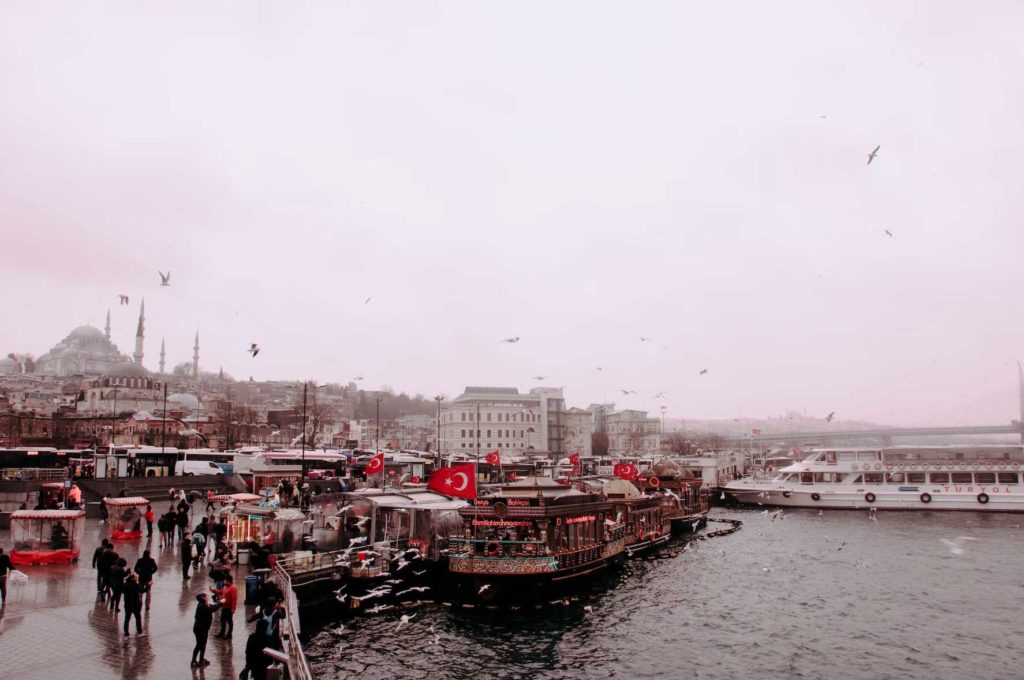
How to get around Istanbul
Getting around Istanbul is relatively easy, thanks to its extensive public transportation network and various other transportation options. Here are some ways to navigate the city:
Metro: The Istanbul Metro is a fast and efficient way to travel within the city. There are multiple lines that connect major tourist areas, residential neighborhoods, and business districts. You can use the Metro to reach destinations like Taksim, Sultanahmet, and the shopping district of Şişli.
Tram: The modern tram system in Istanbul is another convenient and affordable option for getting around. The T1 line runs between Kabataş and Bagcilar, passing through major tourist areas like Sultanahmet and Eminönü.
Funiculars: Istanbul has two funicular lines that connect lower and upper parts of the city. The Tünel Funicular connects Karaköy to Beyoğlu, while the Kabataş-Taksim Funicular links Kabataş to Taksim Square.
Buses: Istanbul has an extensive bus network that covers both the European and Asian sides of the city. Buses can be a bit more challenging for tourists due to their complex routes and potential language barriers, but they can help you reach more remote destinations not served by the metro or tram systems.

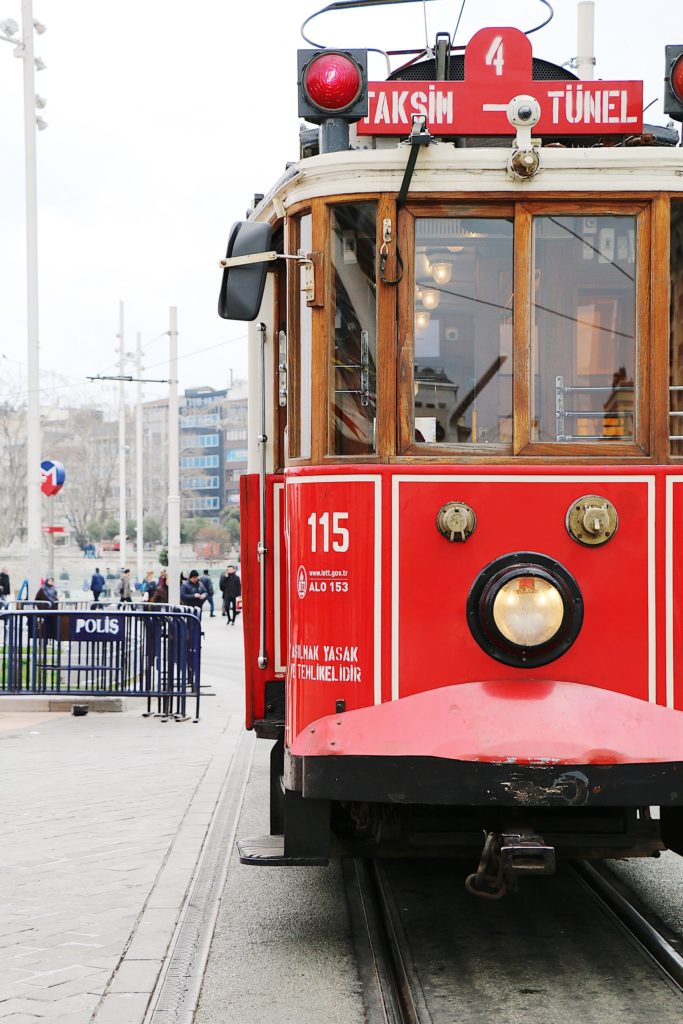
Ferries and Sea Buses: One of the most enjoyable ways to get around Istanbul is by ferry or sea bus. These services operate across the Bosphorus, connecting the European and Asian sides of the city, as well as the Princes’ Islands. Enjoy stunning views of Istanbul’s skyline and waterfront as you travel between destinations.
Taxis: Taxis are available throughout Istanbul and can be convenient for short trips or when public transportation is not easily accessible. Be aware that taxis can be more expensive than other options, and traffic can sometimes be heavy. Always ensure that the taxi meter is running to avoid overcharging.
Ridesharing Apps: Ridesharing apps like Uber and BiTaksi are also available in Istanbul, offering an alternative to traditional taxis. These apps can provide a more predictable and transparent pricing structure, as well as the convenience of booking and paying via your smartphone.
Bike and Scooter Sharing: Istanbul has a growing network of bike and scooter sharing services, such as İsbike and Martı. These services allow you to rent bicycles or electric scooters for short trips around the city, providing an eco-friendly and fun transportation option.
Car Rentals: Renting a car can be useful if you plan to explore areas outside of Istanbul, but it may not be the most practical option for navigating the city center due to traffic congestion and limited parking.
To use public transportation in Istanbul, you’ll need an Istanbulkart, a rechargeable smart card that can be used on all forms of public transport. You can purchase an Istanbulkart at major transit stations, kiosks, or vending machines and load it with credit as needed. Remember that public transportation can be crowded during rush hours, so plan your trips accordingly to ensure a more comfortable experience.
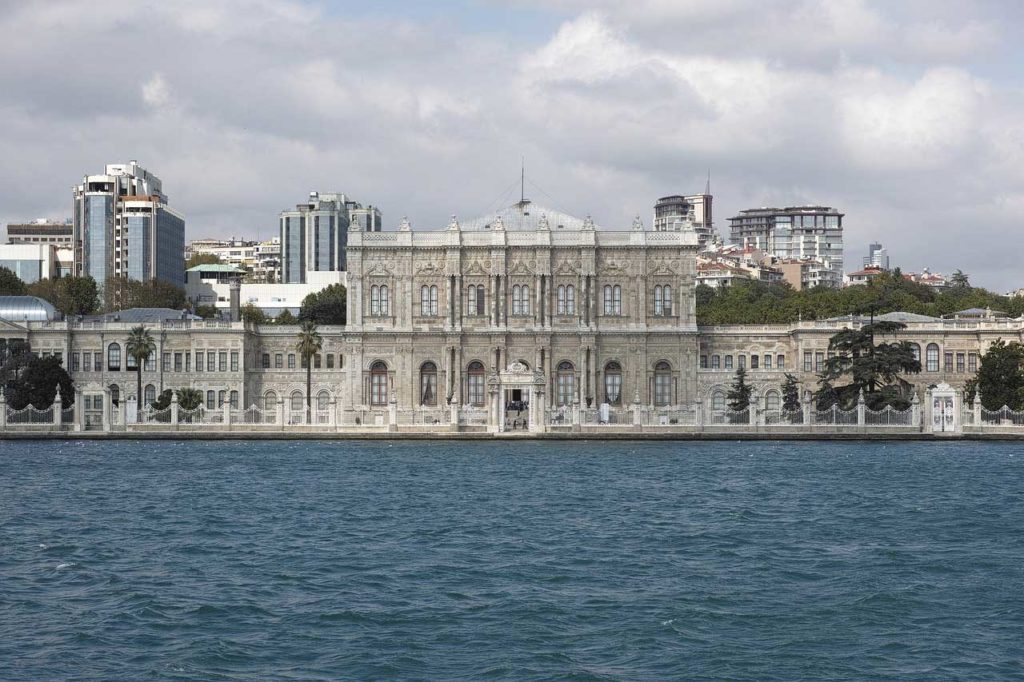
Must-See Attractions in Istanbul
Istanbul, a city where the East meets the West, boasts a rich history that spans thousands of years. As the former capital of three great empires – the Roman, Byzantine, and Ottoman – Istanbul is home to an incredible array of historical sites, architectural wonders, and vibrant neighborhoods. In this presentation, we will explore the must-see attractions that make Istanbul a truly unique and unforgettable destination.
Hagia Sophia:
Once the largest church in Christendom and later a mosque, Hagia Sophia is now a museum showcasing the city’s diverse religious history. Its magnificent dome, intricate mosaics, and stunning architecture make it a must-visit landmark in Istanbul.
Blue Mosque (Sultanahmet Mosque):
This iconic mosque, known for its cascading domes and six minarets, is adorned with more than 20,000 blue Iznik tiles, which give it its nickname. The Blue Mosque remains an active place of worship while also being open to visitors.
Topkapi Palace:
The Topkapi Palace was the primary residence of the Ottoman sultans for over 400 years. Today, it serves as a museum, showcasing Ottoman art, treasures, and historical artifacts. Don’t miss the Harem, the Imperial Treasury, and the palace’s beautiful gardens.
Basilica Cistern:
This ancient underground cistern, built during the reign of Emperor Justinian I, once stored water for the Great Palace of Constantinople. The cistern features 336 marble columns and is known for its eerie atmosphere and Medusa head column bases.
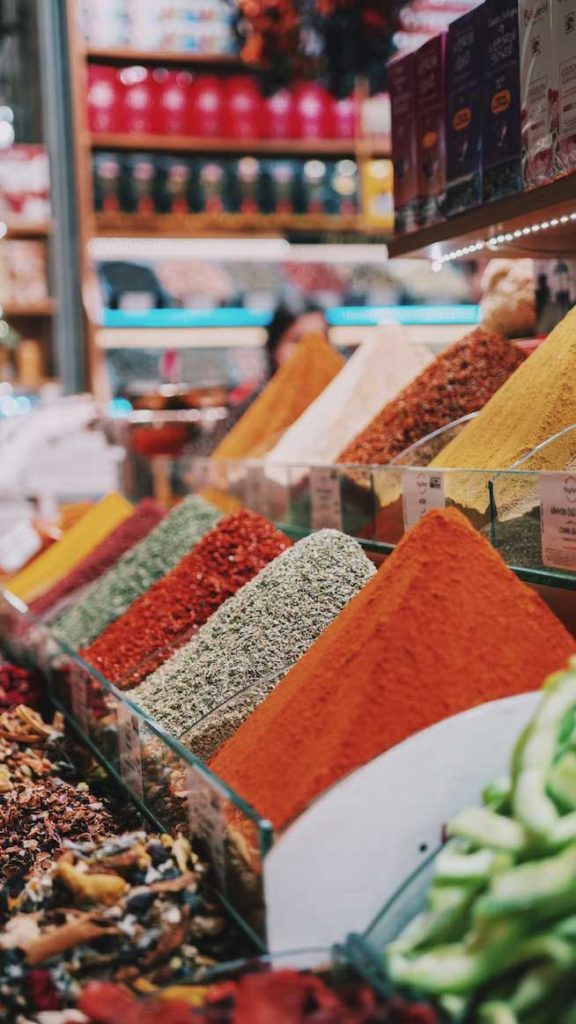
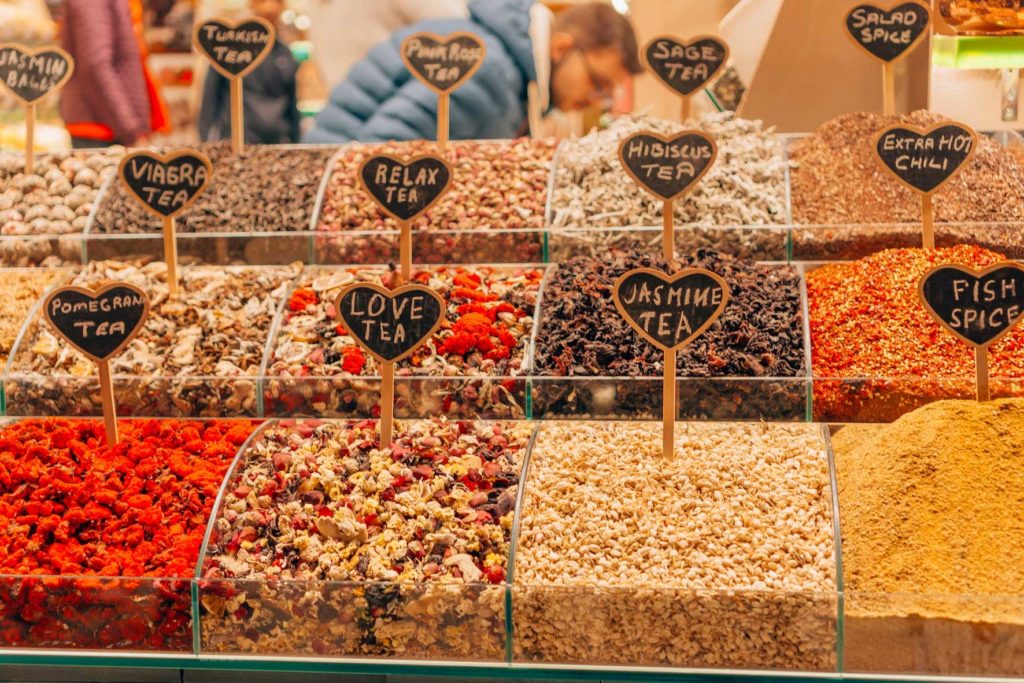
Grand Bazaar:
One of the largest and oldest covered markets in the world, the Grand Bazaar is a labyrinth of over 4,000 shops selling everything from spices and textiles to jewelry and souvenirs. The bazaar is a fantastic place to experience Istanbul’s vibrant shopping culture and practice your bargaining skills.
Spice Bazaar (Misir Carsisi):
The Spice Bazaar, also known as the Egyptian Bazaar, is a fragrant and colorful market filled with spices, dried fruits, nuts, teas, and sweets. This historic bazaar is the perfect spot to pick up traditional Turkish food products and experience the local flavors.
Galata Tower:
The medieval Galata Tower offers panoramic views of Istanbul, including the Bosphorus, the Golden Horn, and the city’s historic peninsula. Climb to the top for a breathtaking 360-degree view, and don’t forget to explore the surrounding Galata neighborhood.
Dolmabahçe Palace:
This opulent palace on the Bosphorus shore served as the administrative center and residence of the late Ottoman sultans. Dolmabahçe Palace is renowned for its lavish interiors, which feature crystal chandeliers, gold leaf decorations, and impressive frescoes.
Bosphorus Cruise:
A cruise along the Bosphorus Strait is a must-do activity in Istanbul. As you glide between the European and Asian continents, enjoy views of waterfront palaces, mosques, and mansions. There are various cruise options available, including public ferries, private yachts, and dinner cruises.
Chora Church (Kariye Museum):
Though lesser-known than some other attractions, the Chora Church is home to some of the finest Byzantine mosaics and frescoes in the world. The vivid artwork inside the church tells stories from the Bible and offers a glimpse into the spiritual life of the Byzantine era.
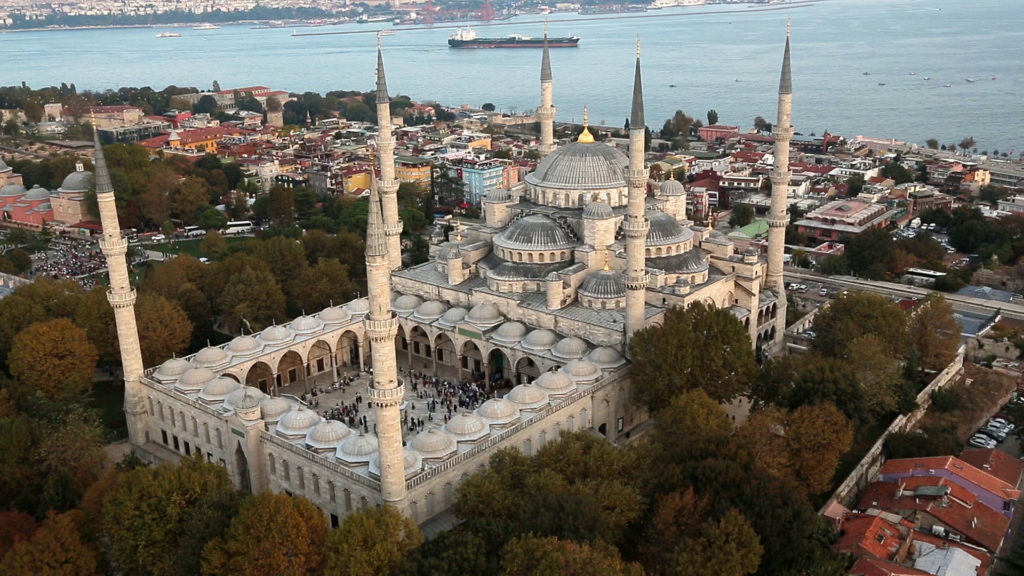
Must-Do Experiences in Istanbul
Istanbul, a city steeped in history and brimming with diverse cultures, offers visitors a wide range of unforgettable experiences. From tasting local cuisine to exploring the vibrant markets, Istanbul’s unique charm and hospitality will leave a lasting impression. In this presentation, we will delve into the must-do experiences that will help you truly immerse yourself in the spirit of this captivating city.
Savor Turkish Cuisine:
Istanbul’s culinary scene reflects its rich cultural heritage, offering a variety of mouth-watering dishes. Sample local street food such as simit, döner, and balik ekmek. Don’t forget to try traditional Turkish delights, baklava, and Turkish tea or coffee in a local tea house.
Experience a Turkish Bath (Hamam):
Indulge in the centuries-old tradition of a Turkish bath, a unique and rejuvenating experience that combines relaxation, cleansing, and cultural immersion. Visit a historic hamam like the Ayasofya Hurrem Sultan Hamam or the Cağaloğlu Hamam for a truly authentic experience.
Wander Through the Historic Neighborhoods:
Explore Istanbul’s enchanting neighborhoods, each with its own character and charm. Stroll through the cobblestone streets of Balat and Fener, the bohemian district of Cihangir, or the cosmopolitan streets of Beyoğlu and Galata.
Take a Bosphorus Cruise:
A cruise along the Bosphorus Strait offers breathtaking views of Istanbul’s skyline and its stunning mix of architectural styles. Glide past waterfront palaces, mosques, and mansions as you navigate between the European and Asian continents.
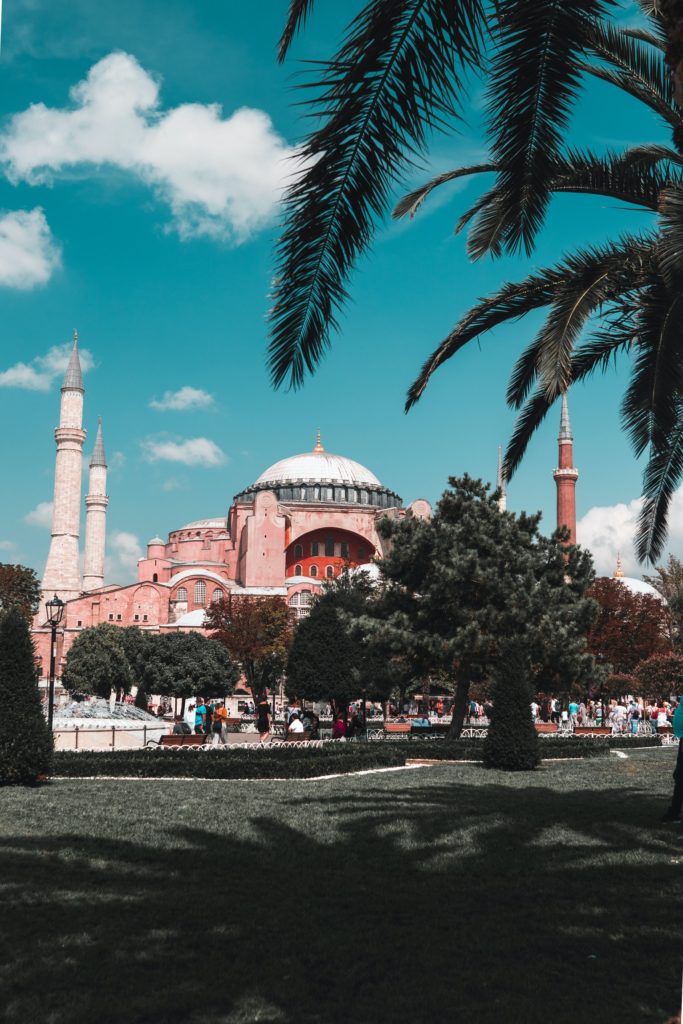
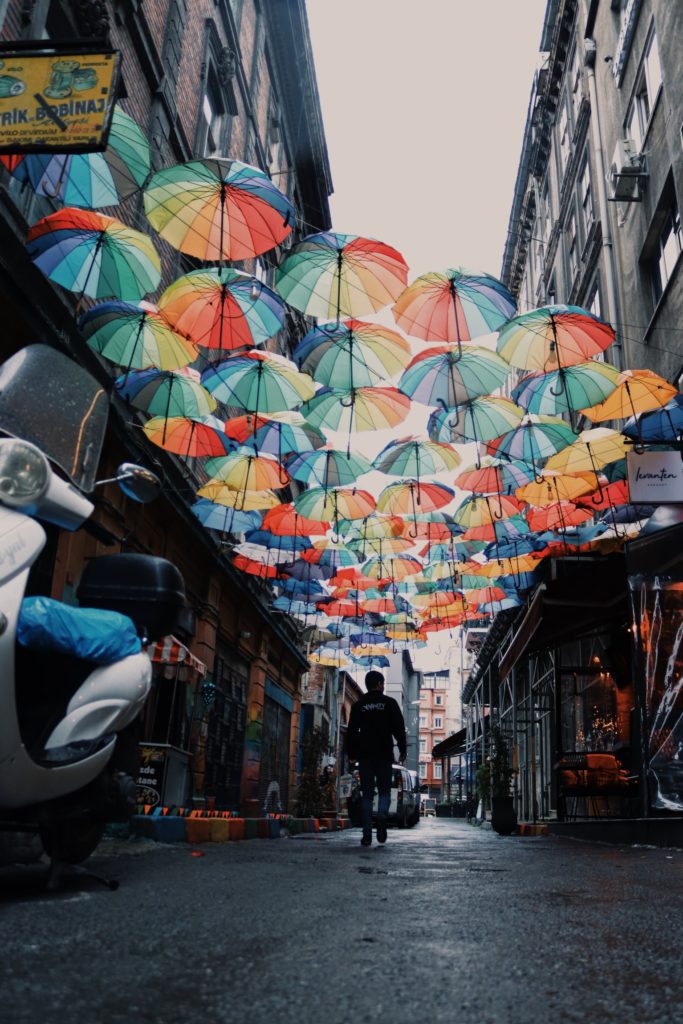
Visit a Whirling Dervishes Ceremony:
Experience the mesmerizing and spiritual practice of the Whirling Dervishes, a form of Sufi meditation that dates back to the 13th century. Attend a ceremony at the Galata Mevlevi House Museum or the Hodjapasha Cultural Center to witness this unique and captivating ritual.
Shop at the Grand Bazaar and Spice Bazaar:
Discover the vibrant atmosphere of Istanbul’s historic markets, where you can shop for traditional goods, souvenirs, and spices. Practice your bargaining skills and immerse yourself in the sights, sounds, and scents of these bustling bazaars.
Discover Street Art in Kadıköy:
The district of Kadıköy on the Asian side of Istanbul has become a hub for street art, with numerous murals adorning the walls of its streets and alleys. Take a walk through the neighborhood and admire the creativity and talent of local and international artists.
Cross the Galata Bridge:
Stroll across the iconic Galata Bridge, which spans the Golden Horn and connects the neighborhoods of Eminönü and Karaköy. Enjoy panoramic views of the city, watch fishermen cast their lines, and sample delicious street food from vendors along the way.
Attend a Live Music Performance:
Istanbul’s thriving music scene offers a diverse range of live performances, from traditional Turkish music to modern rock and jazz. Visit venues like Babylon, Nardis Jazz Club, or the Istanbul Foundation for Culture and Arts (IKSV) Salon to enjoy a night of unforgettable music.
Explore the Princes’ Islands:
Escape the hustle and bustle of the city by taking a ferry to the Princes’ Islands, a group of nine car-free islands in the Sea of Marmara. Enjoy the tranquility, lush landscapes, and charming architecture as you explore the islands on foot or by bicycle.
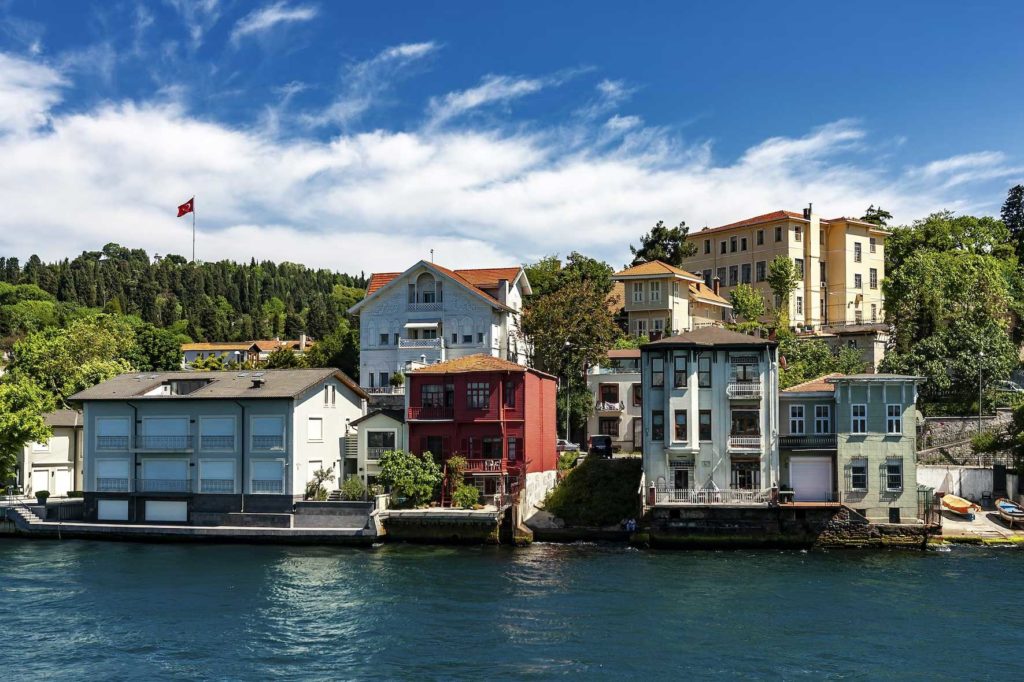
The iconic and most luxurious hotels of Istanbul
Istanbul is home to several iconic and luxurious hotels that offer exceptional accommodations, world-class service, and unique experiences. Here are some of the most renowned and opulent hotels in the city:
Çırağan Palace Kempinski:
Once an Ottoman palace, the Çırağan Palace Kempinski is a stunning five-star hotel situated on the Bosphorus’ European shores. With its blend of historical charm and modern luxury, guests can enjoy a lavish stay complete with an infinity pool, fine dining restaurants, and a rejuvenating spa.
Four Seasons Hotel Istanbul at the Bosphorus:
Located in a former 19th-century Ottoman palace, the Four Seasons Hotel Istanbul at the Bosphorus offers a luxurious retreat with stunning waterfront views. The hotel features elegant rooms and suites, an expansive outdoor pool, a full-service spa, and top-notch dining options.
The Ritz-Carlton Istanbul:
Overlooking the Bosphorus and the city’s historic skyline, The Ritz-Carlton Istanbul offers a blend of luxury and timeless elegance. The hotel features refined accommodations, a rejuvenating spa, an indoor pool, and multiple dining venues, including an open-air terrace with panoramic views.
Shangri-La Bosphorus:
This luxurious hotel, situated along the Bosphorus Strait, offers breathtaking views and opulent accommodations. Guests can enjoy amenities such as a CHI Spa, an indoor pool, and a variety of dining options, including Shang Palace, which serves exquisite Chinese cuisine.
Pera Palace Hotel:
A historic landmark in the Beyoğlu district, the Pera Palace Hotel offers a glimpse into the city’s glamorous past with its neoclassical architecture and elegant décor. The hotel boasts luxurious rooms and suites, a spa, and the renowned Agatha Restaurant, named after the famous author Agatha Christie.
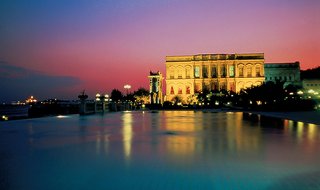
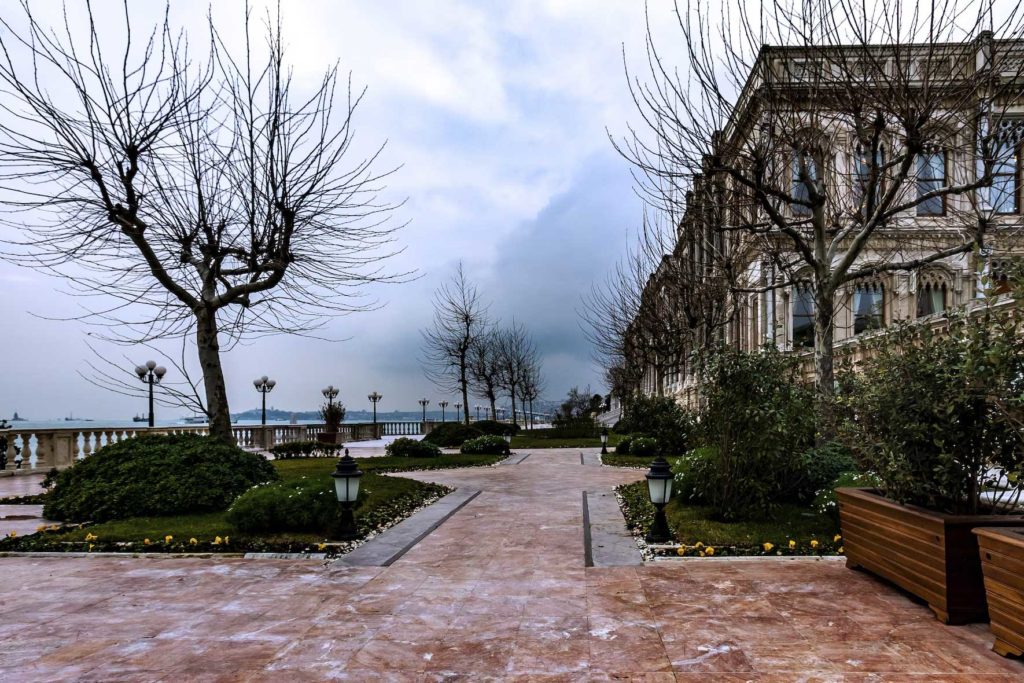
Swissôtel The Bosphorus:
Nestled within 65 acres of gardens and overlooking the Bosphorus, the Swissôtel The Bosphorus offers a luxurious stay in a serene setting. The hotel features contemporary rooms, an award-winning spa, multiple dining venues, and an outdoor pool with stunning views.
The St. Regis Istanbul:
Located in the upscale district of Nişantaşı, The St. Regis Istanbul is known for its impeccable service and sophisticated design. The hotel offers luxurious accommodations, a tranquil spa, and an exceptional dining experience at the on-site Spago Istanbul, helmed by celebrity chef Wolfgang Puck.
Grand Hyatt Istanbul:
Situated in the heart of the city, the Grand Hyatt Istanbul offers a luxurious oasis with easy access to major attractions. The hotel features elegant rooms, a full-service spa, an outdoor pool, and multiple dining options, including the acclaimed 34 Restaurant, known for its modern Turkish and Mediterranean cuisine.
Park Hyatt Istanbul – Maçka Palas:
Located in the posh Nişantaşı district, the Park Hyatt Istanbul – Maçka Palas offers a refined and intimate experience. The hotel features spacious rooms and suites, a rooftop pool, a luxurious spa, and the elegant Lounge at Park Hyatt, which serves Turkish and international cuisine.
Sumahan on the Water:
A boutique hotel on the Asian shores of the Bosphorus, Sumahan on the Water is a restored 19th-century Ottoman distillery turned into a luxurious retreat. The hotel features spacious, individually designed rooms and suites, a waterfront restaurant, and a wellness center.

Food and drinks in Instanbul
Food specialties in Istanbul
Istanbul, a city that straddles two continents, has a rich culinary heritage influenced by its diverse history and vibrant culture. From delicious street food to exquisite dishes served in fine dining establishments, Istanbul offers a vast array of food specialties that are sure to tantalize your taste buds. In this presentation, we will explore some of the must-try food specialties that make Istanbul a culinary paradise.
Kebabs:
Kebabs are a staple of Turkish cuisine, and Istanbul offers countless variations of this mouth-watering dish. From Adana kebab (spicy minced meat on a skewer) to şiş kebab (marinated meat on a skewer), there is a kebab for every palate.
Döner:
Döner, made from seasoned meat cooked on a vertical rotisserie, is a popular street food in Istanbul. Typically served as a sandwich or wrapped in flatbread, döner is a quick and satisfying meal option.
Simit:
A favorite Turkish street food, simit is a sesame-encrusted circular bread often enjoyed with tea. Sold by street vendors across the city, simit is a delicious and affordable snack.
Balik Ekmek:
Balik ekmek is a simple yet flavorful sandwich made with freshly grilled fish, typically mackerel, and served in crusty bread with onions, lettuce, and a squeeze of lemon. The best balik ekmek can be found near the Galata Bridge and along the Bosphorus.
Meze:
Meze is a selection of small dishes, typically served as appetizers in Istanbul’s restaurants and taverns. Popular meze dishes include dolma (stuffed vine leaves), patlıcan salatası (smoky eggplant salad), and haydari (yogurt with herbs and garlic).
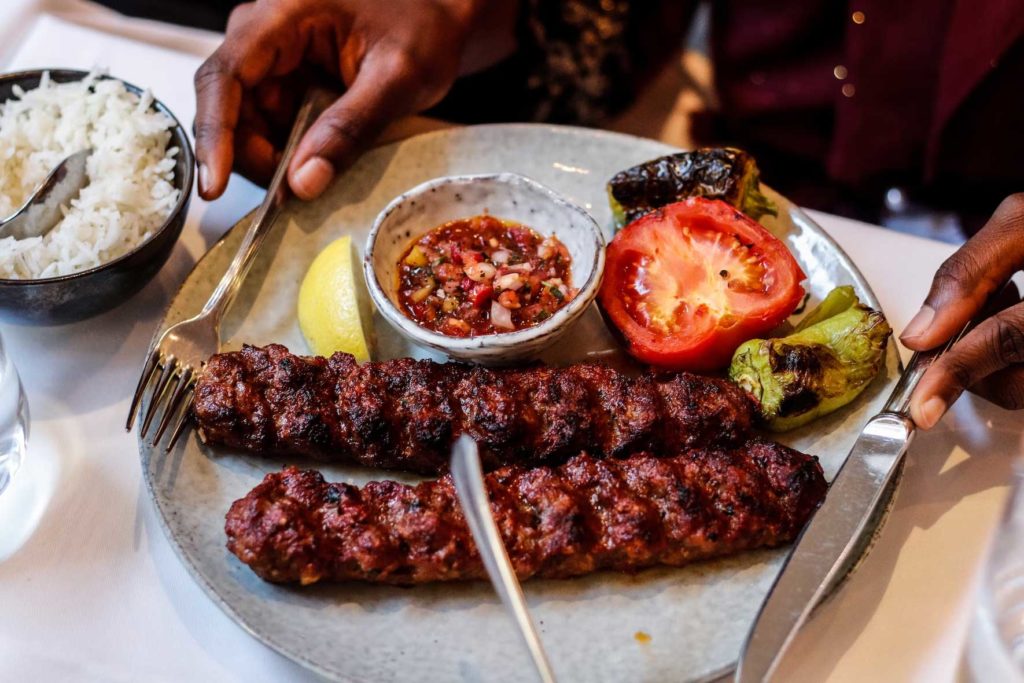
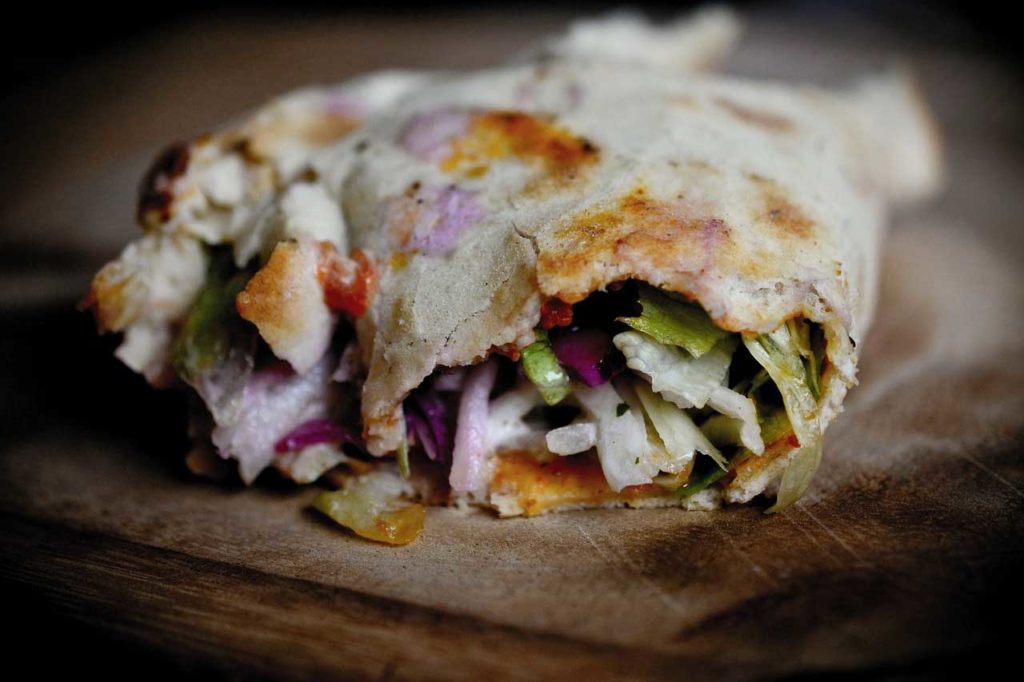
Lahmacun:
Often referred to as “Turkish pizza,” lahmacun is a thin, crispy flatbread topped with a flavorful mixture of minced meat, tomatoes, onions, and spices. It is usually served with a side of fresh herbs, lemon, and pickles.
Baklava:
Baklava is a classic Turkish dessert made from layers of thin, flaky pastry filled with chopped nuts and soaked in syrup. Sample this sweet treat at one of Istanbul’s renowned baklava shops, like Karaköy Güllüoğlu or Hafiz Mustafa.
Turkish Delight (Lokum):
A traditional Turkish confection, Turkish Delight is a soft, chewy treat made from sugar, starch, and water, flavored with a variety of ingredients such as rosewater, lemon, pomegranate, and nuts. Visit the Spice Bazaar or a specialty store like Ali Muhiddin Hacı Bekir to taste the best lokum in the city.
Künefe:
Künefe is a delicious dessert made from shredded pastry (kadayif) filled with a layer of melted cheese and soaked in syrup. Served warm, this sweet and savory treat is best enjoyed at a traditional dessert shop like Tatbak or Köşkeroğlu.
Turkish Tea and Coffee:
Turkish tea and coffee are integral to Istanbul’s culinary culture. Savor a strong, aromatic Turkish coffee, often served with a piece of Turkish Delight, or enjoy a soothing glass of Turkish tea, served in a tulip-shaped glass.
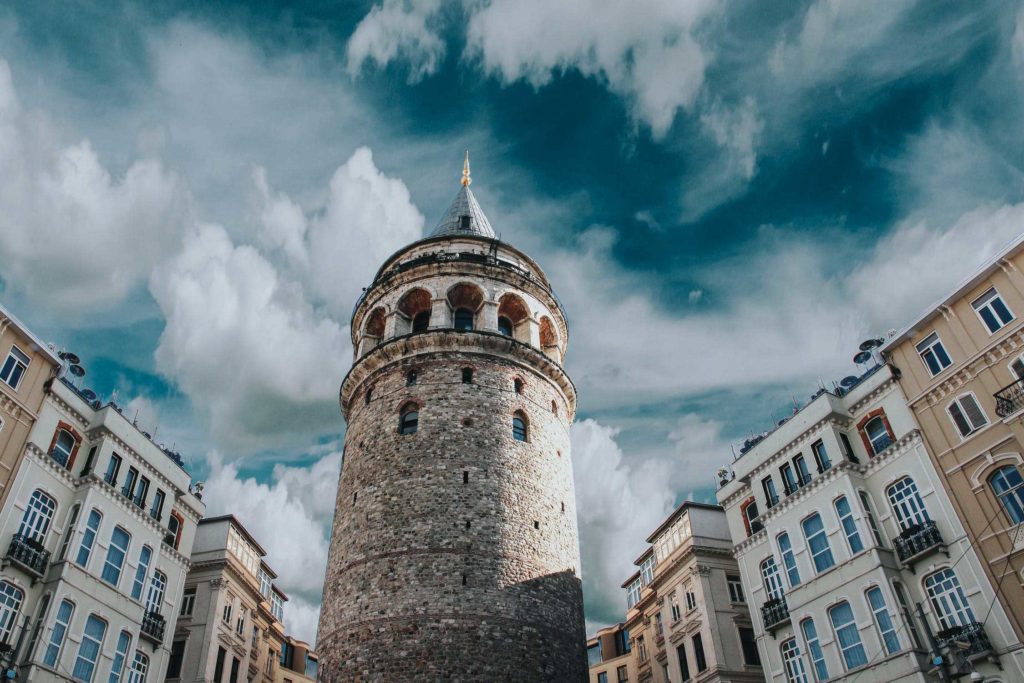
Top restaurants to try in Istanbul
Istanbul’s thriving culinary scene is home to a variety of exceptional restaurants, ranging from traditional Turkish eateries to innovative fine-dining establishments. In this presentation, we will explore the top 10 restaurants in Istanbul, showcasing the talents of their renowned chefs and their signature specialties.
Mikla:
Chef: Mehmet Gürs
Specialty: New Anatolian Cuisine
Mikla, perched on the top floor of The Marmara Pera Hotel, offers a breathtaking view of the city. Chef Mehmet Gürs presents a contemporary take on Anatolian cuisine, using locally sourced ingredients. Signature dishes include the smoked lamb loin with wild herbs and the manti (Turkish dumplings) with slow-cooked beef.
Neolokal:
Chef: Maksut Aşkar
Specialty: Modern Turkish Cuisine
Neolokal, located in the SALT Galata building, features modern interpretations of traditional Turkish dishes by Chef Maksut Aşkar. The restaurant is known for its farm-to-table approach and seasonal menu. Standout dishes include the cured mackerel with fennel and the roasted pumpkin with goat cheese.
Hunkar:
Chef: İsmet Saz
Specialty: Classic Turkish Cuisine
Hunkar, founded in 1950, is a beloved institution serving classic Turkish cuisine under the watchful eye of Chef İsmet Saz. The restaurant is renowned for its melt-in-your-mouth braised lamb shank and the traditional stuffed eggplant (karnıyarık).
Nicole:
Chef: Aylin Yazıcıoğlu
Specialty: Mediterranean-Inspired Tasting Menus
Located in the historic Tomtom neighborhood, Nicole offers seasonal tasting menus inspired by Mediterranean flavors and created by Chef Aylin Yazıcıoğlu. Highlights include the black grouper with Jerusalem artichokes and the slow-cooked beef cheek with smoked eggplant purée.
Ulus 29:
Chef: Mustafa Otar
Specialty: Turkish and International Cuisine
Ulus 29, set on a hill overlooking the Bosphorus, is known for its stunning views and sophisticated menu. Chef Mustafa Otar expertly combines Turkish and international flavors, with dishes such as the grilled octopus with chickpea purée and the beef tenderloin with Anatolian herbs.
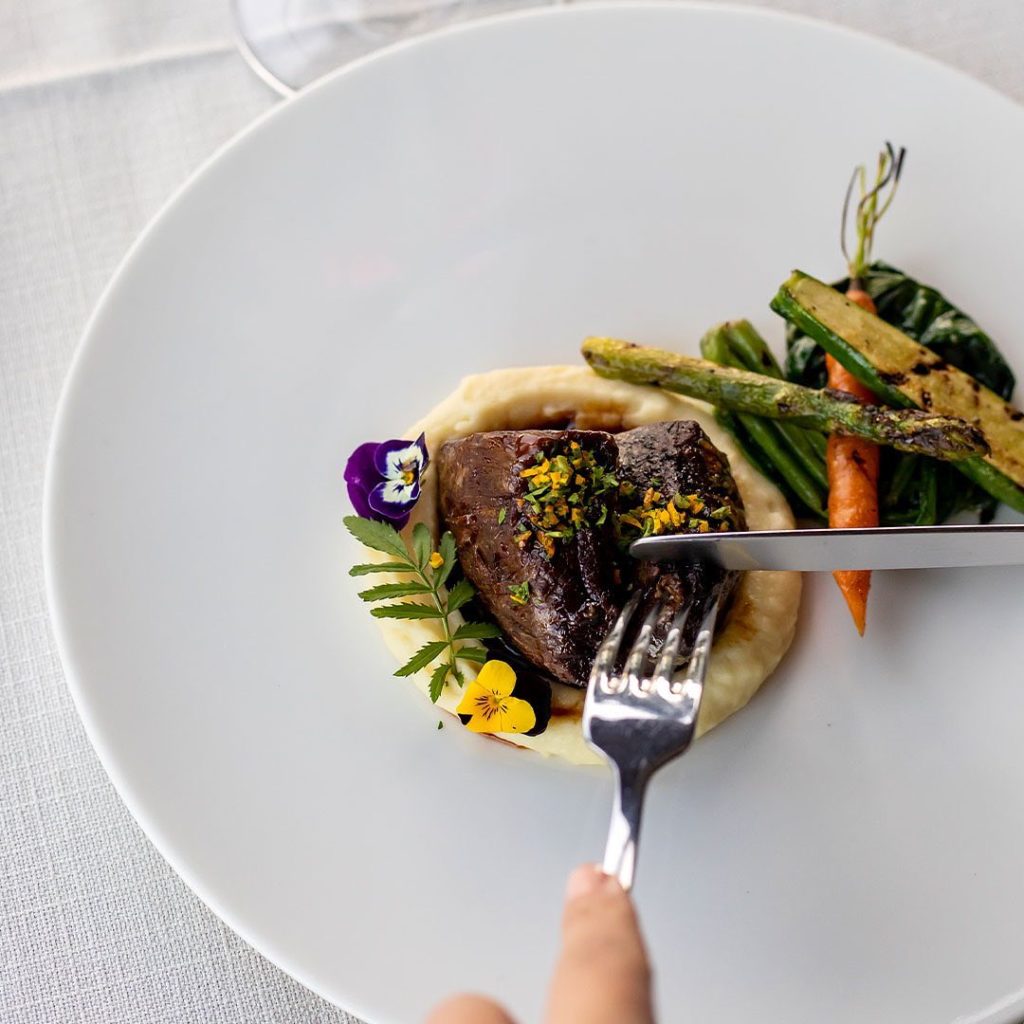

Nusr-Et:
Chef: Nusret Gökçe (Salt Bae)
Specialty: Steaks and Meat Dishes
Nusr-Et, owned by the famous chef Nusret Gökçe, also known as Salt Bae, is a renowned steakhouse with locations around the world. The restaurant is celebrated for its perfectly cooked steaks and signature theatrical salt-sprinkling technique.
Sunset Grill & Bar:
Chef: Ebru Baybara Demir
Specialty: Turkish, Mediterranean, and Japanese Cuisine
Sunset Grill & Bar, located in the upscale neighborhood of Ulus, offers panoramic views of the Bosphorus. Chef Ebru Baybara Demir’s menu features an eclectic mix of Turkish, Mediterranean, and Japanese dishes, including the grilled sea bass with olive oil mashed potatoes and the sushi platter.
Çiya Sofrası:
Chef: Musa Dağdeviren
Specialty: Regional Turkish Cuisine
Çiya Sofrası, located in the bustling Kadıköy district, is a culinary treasure showcasing regional Turkish dishes. Chef Musa Dağdeviren curates a menu that changes daily, offering an array of traditional flavors such as stuffed zucchini blossoms and the pomegranate and walnut salad.
Karaköy Lokantası:
Chef: Oral Kurt
Specialty: Traditional Turkish Cuisine with a Modern Twist
Karaköy Lokantası, situated in the vibrant Karaköy district, is a stylish eatery serving traditional Turkish cuisine with a modern touch. Under the guidance of Chef Oral Kurt, the restaurant offers dishes such as hünkar beğendi (braised lamb with eggplant purée) and grilled sea bream with lemon and olive oil.
Balıkçı Sabahattin:
Chef: Sabahattin Batur
Specialty: Seafood
Balıkçı Sabahattin, a historic seafood restaurant nestled in the heart of the Sultanahmet district, is known for its exceptional fish dishes. Chef Sabahattin Batur offers a menu that focuses on the freshest seafood, with highlights like the grilled sea bass and the octopus salad with a tangy dressing.
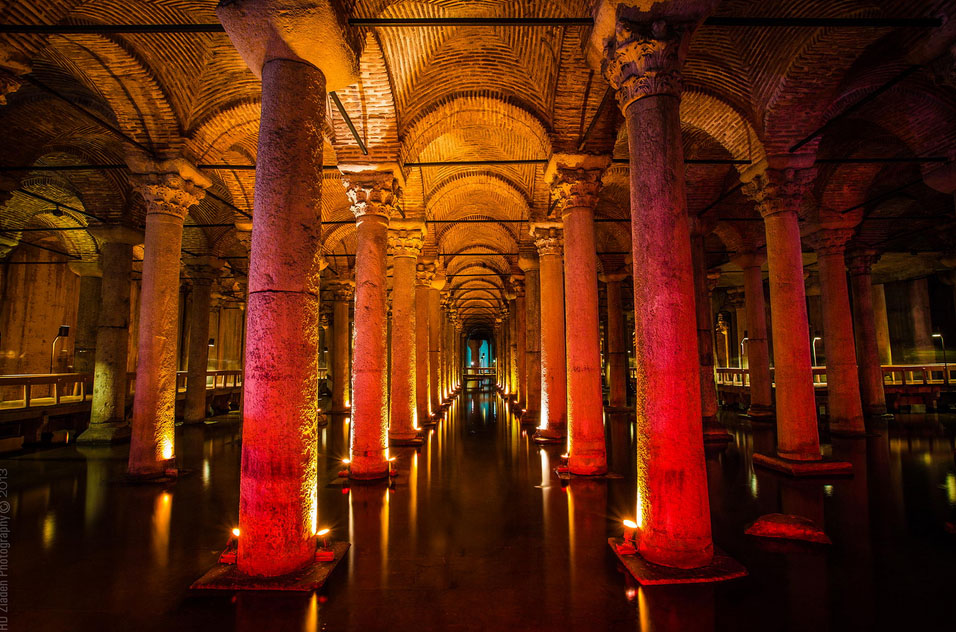
Best rooftop bars in Istanbul
Istanbul, a city with a breathtaking skyline and stunning views of the Bosphorus, is home to an array of rooftop bars offering exceptional panoramas and vibrant atmospheres. In this presentation, we will explore some of the best rooftop bars in Istanbul, perfect for enjoying a drink while admiring the city’s enchanting beauty.
Mikla Bar:
Located on the top floor of The Marmara Pera Hotel, Mikla Bar shares the same stunning views as its sister restaurant, Mikla. With a chic atmosphere and an impressive cocktail menu, Mikla Bar is an ideal spot to unwind and soak in the mesmerizing cityscape.
5.Kat:
Situated in the bustling neighborhood of Cihangir, 5.Kat offers a charming rooftop terrace with panoramic views of the Bosphorus and the Golden Horn. The bar features a diverse selection of cocktails and a menu of light bites, perfect for an evening of relaxation.
Leb-i Derya:
Nestled in the historic district of Galata, Leb-i Derya boasts a stylish rooftop terrace with sweeping views of the Bosphorus and the city’s iconic landmarks. The bar offers an extensive cocktail menu and a range of delicious appetizers, making it an ideal spot for a memorable night out.
Vogue:
Located in the upscale neighborhood of Beşiktaş, Vogue is a sophisticated rooftop bar with spectacular views of the Bosphorus and the European and Asian skylines. With an extensive cocktail menu and an array of sushi and tapas dishes, Vogue is a popular destination for Istanbul’s stylish crowd.
X Restaurant & Bar:
Perched atop the luxurious Conrad Istanbul Bosphorus hotel, X Restaurant & Bar offers breathtaking views of the Bosphorus, the Old City, and the Asian shoreline. The bar features an extensive drink menu, including signature cocktails, and a selection of tasty appetizers.
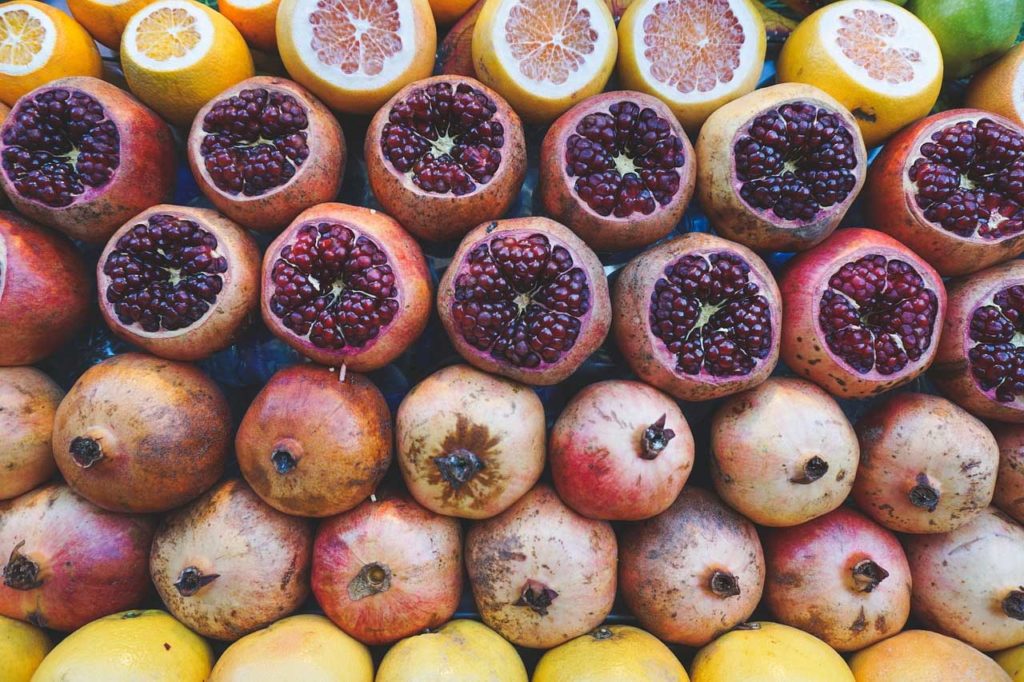
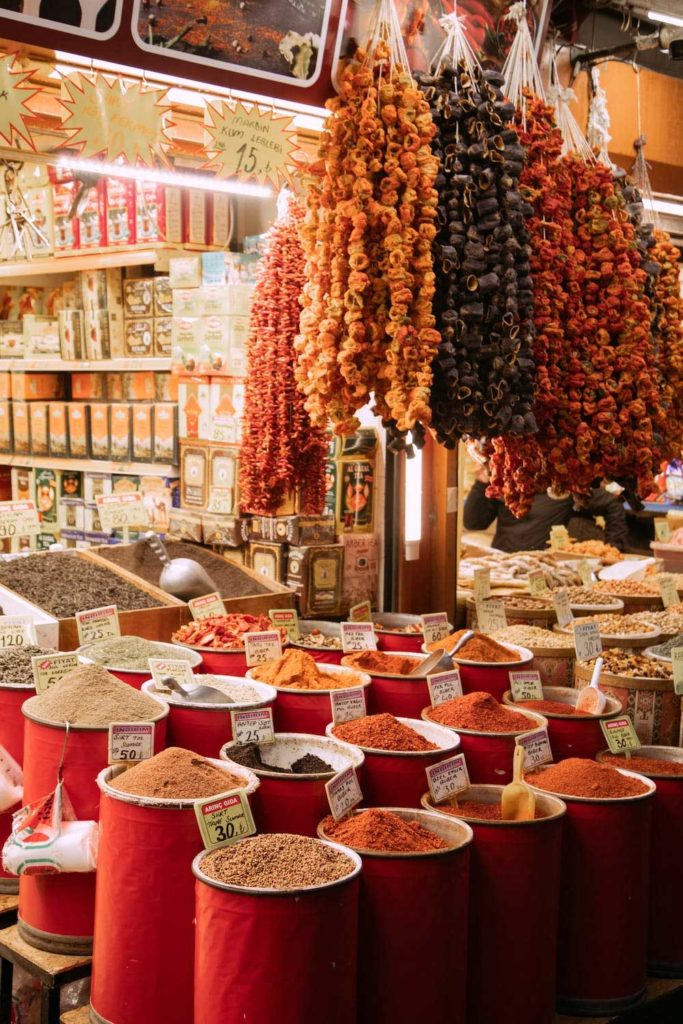
SEQUOIA:
Situated along the Bosphorus in the trendy neighborhood of Ortaköy, SEQUOIA boasts a chic rooftop terrace with fantastic views of the Bosphorus Bridge. The bar offers a wide selection of cocktails and a variety of Mediterranean and Asian-inspired dishes.
360 Istanbul:
Located in the vibrant Beyoğlu district, 360 Istanbul offers a stunning 360-degree view of the city, including the Bosphorus, the Golden Horn, and the historic peninsula. With an extensive cocktail menu and a range of appetizers, 360 Istanbul is a popular spot for tourists and locals alike.
Bunk Lounge:
Perched atop the DoubleTree by Hilton Moda, Bunk Lounge offers a stunning rooftop terrace with panoramic views of the Bosphorus and the Prince’s Islands. The bar features a diverse drink menu and a selection of delicious snacks, making it an ideal spot for a relaxing evening.
Alexandra Cocktail Bar:
Located in the heart of the trendy Karaköy district, Alexandra Cocktail Bar offers a cozy rooftop terrace with stunning views of the Old City and the Galata Tower. The bar features an array of signature cocktails and a menu of light bites, perfect for enjoying the city’s enchanting atmosphere.
High Lounge:
Situated atop the stylish Georges Hotel Galata, High Lounge offers a rooftop terrace with unparalleled views of the Galata Tower, the Bosphorus, and the Old City. The bar features a wide selection of drinks, including an impressive gin menu, and a variety of tasty appetizers.
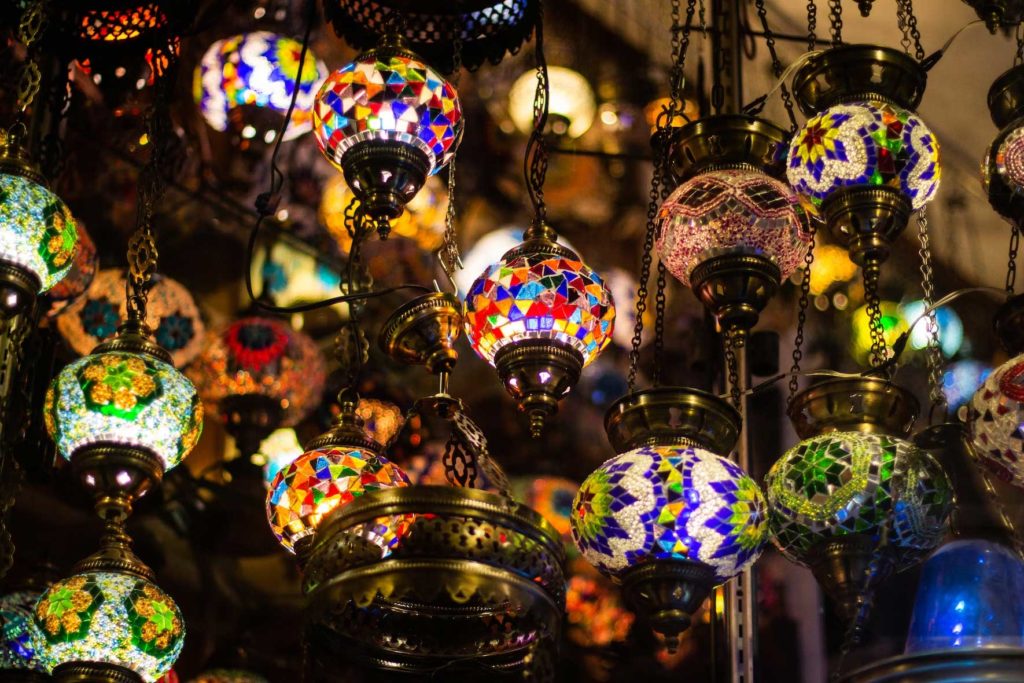
Customs and way of life in Istanbul
Istanbul, a city steeped in history and diverse cultural influences, offers a unique blend of customs and ways of life. The city’s residents are known for their warmth, hospitality, and adherence to tradition, all of which contribute to the distinctive atmosphere that makes Istanbul so special. In this presentation, we will explore some of the customs and everyday experiences that shape the way of life in Istanbul.
Hospitality:
Turkish hospitality is a cornerstone of Istanbul’s culture. Locals take pride in making guests feel welcome and often go above and beyond to ensure their comfort. It is common to be offered tea or coffee when visiting a shop or someone’s home, as a gesture of goodwill and friendship.
Family Life:
Family is highly valued in Istanbul, and it is common for multiple generations to live under one roof or in close proximity to each other. Turkish families often spend time together, sharing meals, celebrating milestones, and maintaining strong connections.
Traditional Tea and Coffee:
Drinking tea and coffee is an integral part of daily life in Istanbul. Locals often gather in tea gardens or coffeehouses to socialize and enjoy a break from their daily routines. Turkish tea is typically served in small, tulip-shaped glasses, while Turkish coffee is strong and served in small cups with a thick layer of grounds at the bottom.
Cuisine:
Istanbul’s cuisine is diverse and heavily influenced by its rich history and various cultural influences. Locals enjoy a variety of dishes, from kebabs and meze to baklava and Turkish delight. Eating out is a popular pastime, and Istanbul’s streets are lined with restaurants, cafes, and street food vendors catering to every taste.
Bazaars and Shopping:
Shopping is a significant aspect of Istanbul’s way of life, and the city’s many bazaars and markets are bustling hubs of activity. The Grand Bazaar and Spice Bazaar are famous for their vibrant atmosphere and vast array of goods. Haggling is customary in these markets, and negotiating a fair price is considered part of the experience.
Dress and Modesty:
While Istanbul is a cosmopolitan city with diverse fashion styles, modesty remains important, particularly in religious settings. Visitors should be respectful of local customs and dress modestly when visiting mosques and other religious sites.
Public Transportation:
Istanbul’s public transportation system is extensive and includes buses, trams, metros, and ferries. Locals rely heavily on public transportation for their daily commutes, making it an essential aspect of life in the city.
Nargile (Hookah) Culture:
Smoking nargile, or hookah, is a popular pastime in Istanbul. Many cafes and bars offer hookahs for patrons to enjoy, often accompanied by tea or coffee. This leisurely activity provides an opportunity for friends and family to relax and socialize.
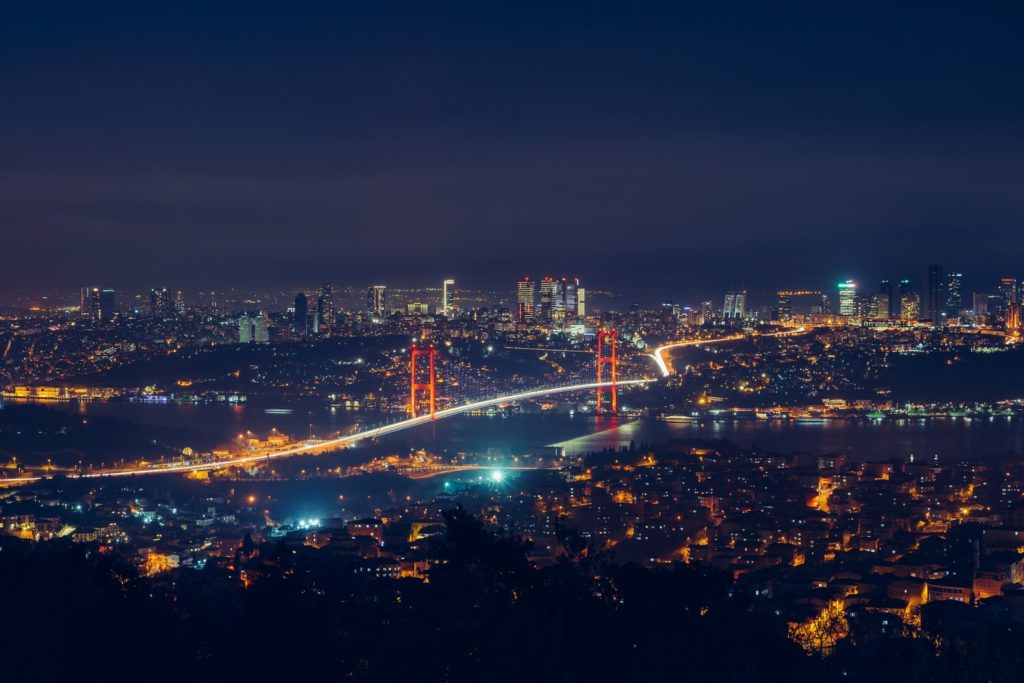
What Not to Do in Istanbul: Things to Avoid
While Istanbul is an exciting and welcoming city, it’s essential to be aware of local customs and cultural differences to ensure a smooth and enjoyable experience. In this presentation, we will explore some of the things you should avoid doing while visiting Istanbul to help you navigate the city with ease and respect for its residents.
Disrespecting Religious Customs:
When visiting mosques and other religious sites, be respectful of the customs and dress modestly. Remove your shoes before entering, dress conservatively (covering shoulders and knees), and women should cover their hair with a scarf.
Ignoring Street Vendors and Touts:
While exploring Istanbul, you may encounter persistent street vendors and touts trying to sell you goods or services. Politely but firmly decline their offers and continue on your way. Engaging in conversation may encourage them to keep trying to sell to you.
Drinking Tap Water:
It’s best to avoid drinking tap water in Istanbul, as it may cause stomach upset for visitors not accustomed to it. Stick to bottled or filtered water to stay healthy during your trip.
Not Haggling in Markets:
Haggling is an essential part of shopping in Istanbul’s markets, such as the Grand Bazaar and the Spice Bazaar. Don’t be afraid to negotiate a lower price, as vendors often expect it. However, be respectful and fair in your negotiations.
Avoiding Public Transportation:
Istanbul has an extensive and efficient public transportation system, including buses, trams, metros, and ferries. Avoid relying solely on taxis, as they can be expensive and, in some cases, dishonest with tourists. Embrace public transportation to save money and get a feel for local life.
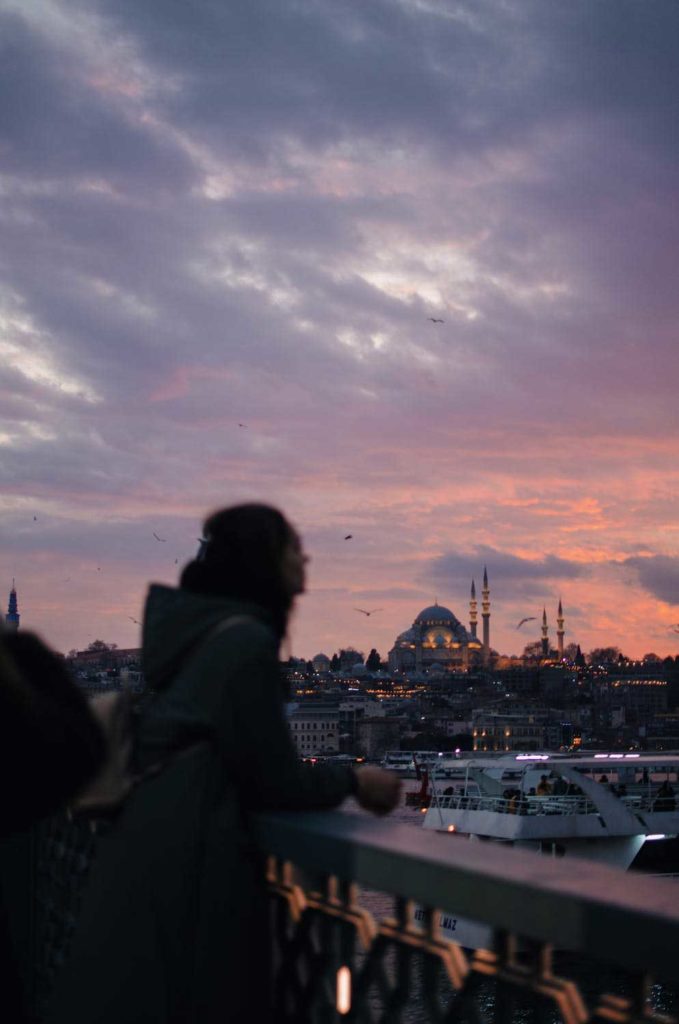
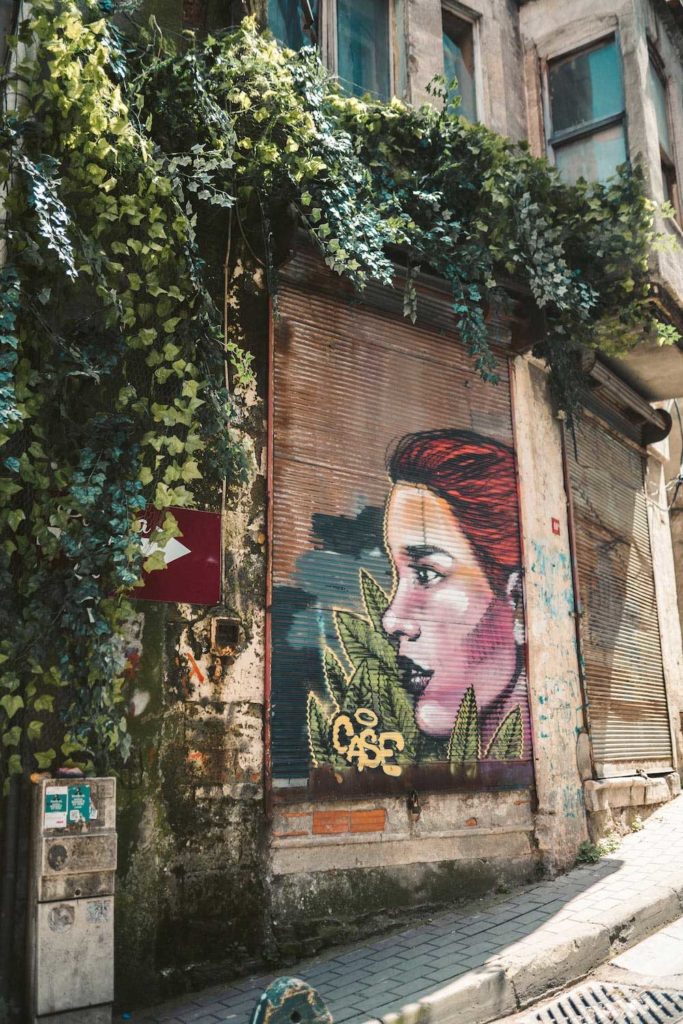
Taking Unlicensed Taxis:
When using taxis, ensure you only take licensed taxis, identifiable by their yellow color and “taksi” sign on the roof. Unlicensed taxis may overcharge or take you on unnecessarily long routes. Always insist on using the meter to avoid overpaying.
Being Unaware of Common Scams:
As a tourist, be aware of common scams targeting visitors, such as the “friendly local” inviting you to a bar, where you may be overcharged, or the “shoe-shine” scam, where someone drops their brush to lure you into paying for a service. Be cautious and trust your instincts.
Exchanging Money at Unfavorable Rates:
When exchanging currency, avoid doing so at the airport or hotels, as they typically offer unfavorable rates. Instead, opt for exchange offices or banks in the city center, where you can usually find better rates.
Overpacking Your Schedule:
Istanbul is a city with a wealth of attractions and experiences, but attempting to see everything in a short time can be overwhelming and exhausting. Prioritize the sites and experiences most important to you, and allow time to relax and soak in the atmosphere.

Shopping, taxes, charges and tipping in Istanbul
In Istanbul, taxation, service charges, and tipping customs vary depending on whether you are shopping or dining at a restaurant. Here’s a breakdown of what you can expect in each situation:
Taxation:
In Turkey, the Value Added Tax (VAT) is applied to most goods and services. As of the knowledge cutoff in September 2021, the standard VAT rate is 18%, while reduced rates of 8% and 1% apply to specific items or services. When shopping in Istanbul, the VAT is usually included in the listed price, so you won’t have to calculate additional taxes when making a purchase.
Service Charges:
When dining at a restaurant, it is common for a service charge to be included in the bill, typically around 10-15% of the total cost. This charge is meant to cover the service provided by the staff. However, it’s essential to check the bill, as not all establishments include a service charge. In some cases, restaurants may add a cover charge (per person) for items like bread and appetizers, which is separate from the service charge.
Tipping:
Tipping customs in Istanbul depend on the specific situation:
Shopping: Tipping is not expected when shopping in Istanbul, whether in a mall, boutique, or bazaar. The prices of items already include taxes, and tipping is not a common practice in retail establishments.
Dining: If a service charge is not included in the bill, it is customary to tip around 10-15% of the total cost to show appreciation for the service. However, if the service charge is already included, tipping is not necessary, although you can still leave a small tip if you wish to acknowledge exceptional service. For more casual dining experiences, such as cafes or street food vendors, tipping is not expected but appreciated for good service.
Taxis: For taxi drivers, rounding up the fare to the nearest whole lira or adding an additional 5-10% of the total fare is considered a suitable tip. However, if the driver has been particularly helpful or provided exceptional service, you may choose to tip more.
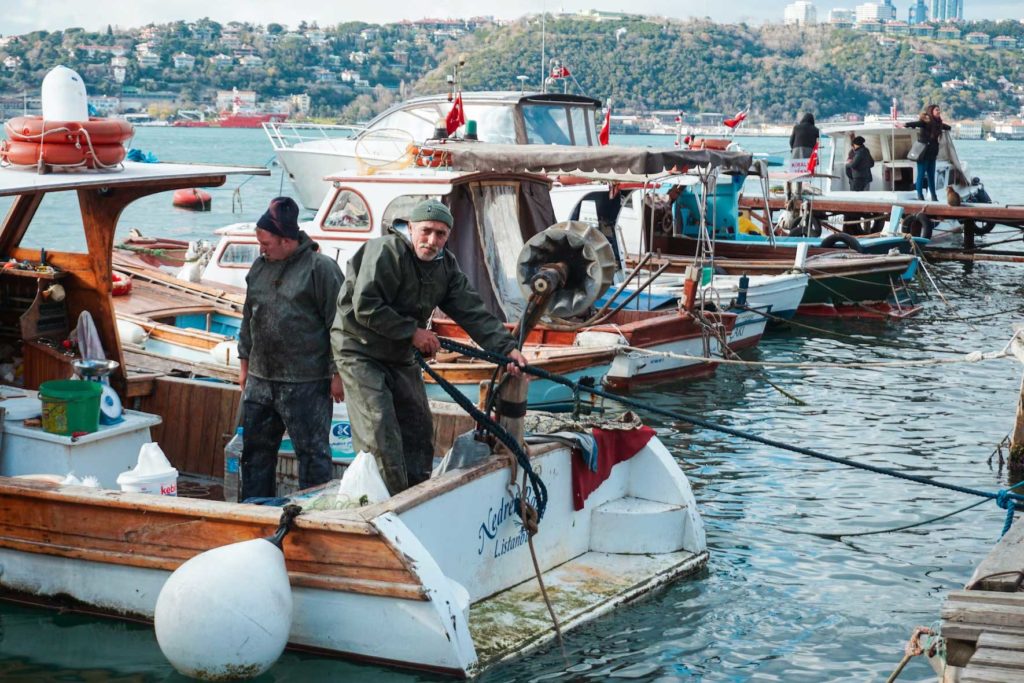
Safety and Security in Istanbul
Istanbul, a bustling city that attracts millions of tourists every year, is generally considered safe for travelers. However, like any major city, it’s essential to be aware of potential safety and security concerns to ensure a smooth and enjoyable trip. In this presentation, we will discuss some tips and precautions to take while visiting Istanbul to maximize your safety.
Petty Crime:
As in many large cities, pickpocketing and bag-snatching can occur in crowded tourist areas, such as the Grand Bazaar, Taksim Square, and public transportation. To minimize your risk, be vigilant about your belongings, use a money belt or hidden pouch for valuables, and avoid displaying expensive items like cameras or smartphones openly.
Scams:
Tourists may be targeted by various scams in Istanbul, such as overcharging for goods and services or being lured into bars with high prices. Be cautious and trust your instincts. Research reputable establishments and always negotiate taxi fares upfront or insist on using the meter.
Traffic Safety:
Traffic in Istanbul can be hectic, and pedestrians should exercise caution when crossing streets or navigating congested areas. Always use designated crosswalks, be aware of your surroundings, and pay attention to traffic signals.
Traveling at Night:
Stick to well-lit, populated areas when walking at night, and consider using reputable taxis or ridesharing services when traveling longer distances. Avoid walking alone in unfamiliar or poorly lit areas.
Terrorism Threats:
While the risk of terrorism has decreased in recent years, it’s essential to remain vigilant and stay informed about the current security situation. Register with your country’s embassy or consulate, follow local news and government travel advisories, and avoid large gatherings or demonstrations.
Emergency Services:
Familiarize yourself with the local emergency numbers: dial 112 for general emergencies, 155 for the police, and 110 for the fire department. Save these numbers in your phone and know your location in case you need to call for help.
Health Precautions:
Carry travel insurance, avoid drinking tap water, and practice good hygiene to minimize the risk of illness. Be aware of any specific health concerns or outbreaks and take necessary precautions, such as vaccinations or medications, before your trip.
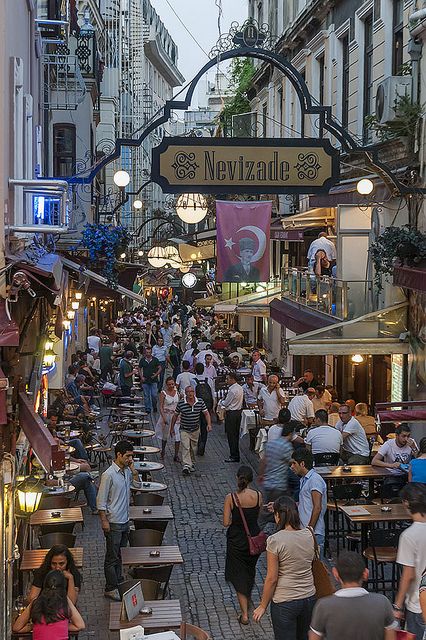
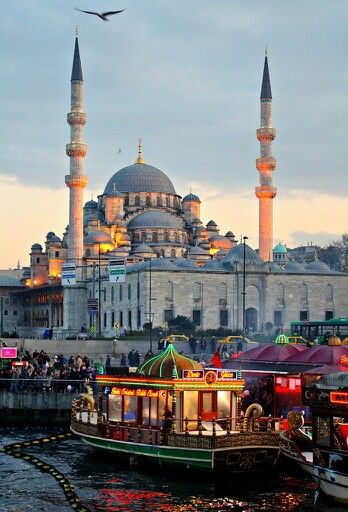
–
Check our other travel guides.